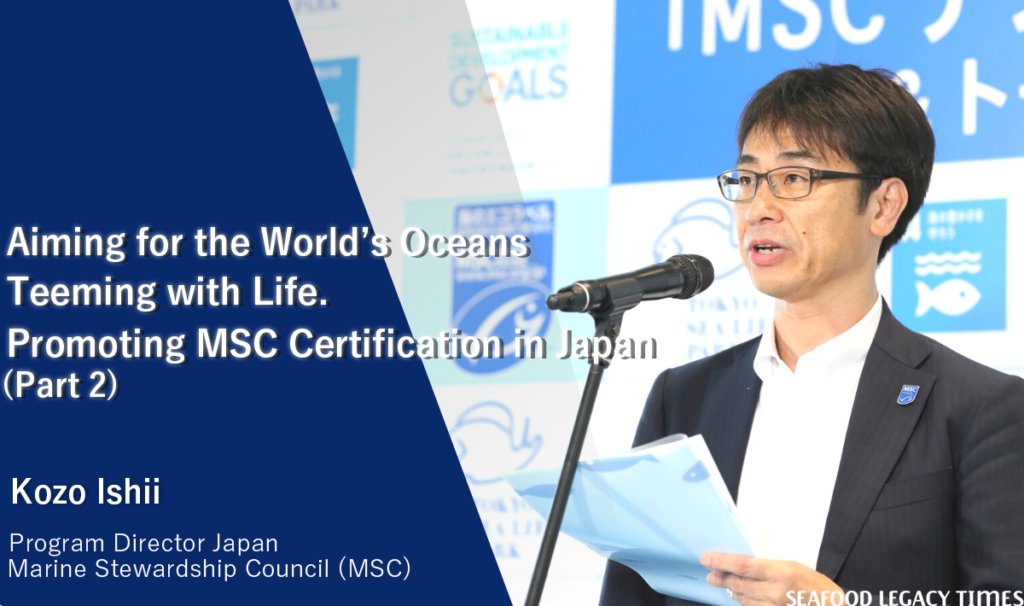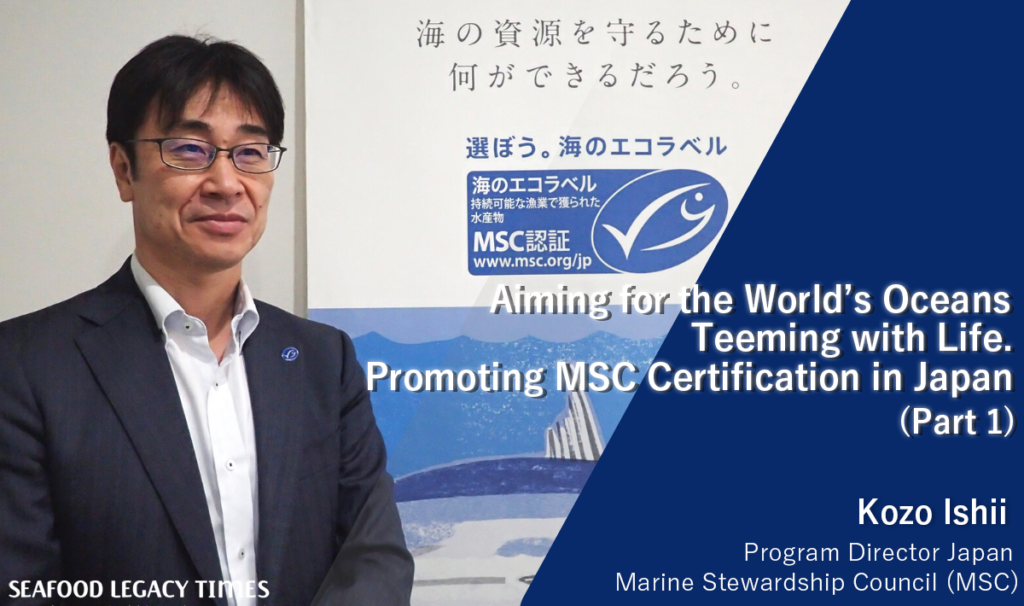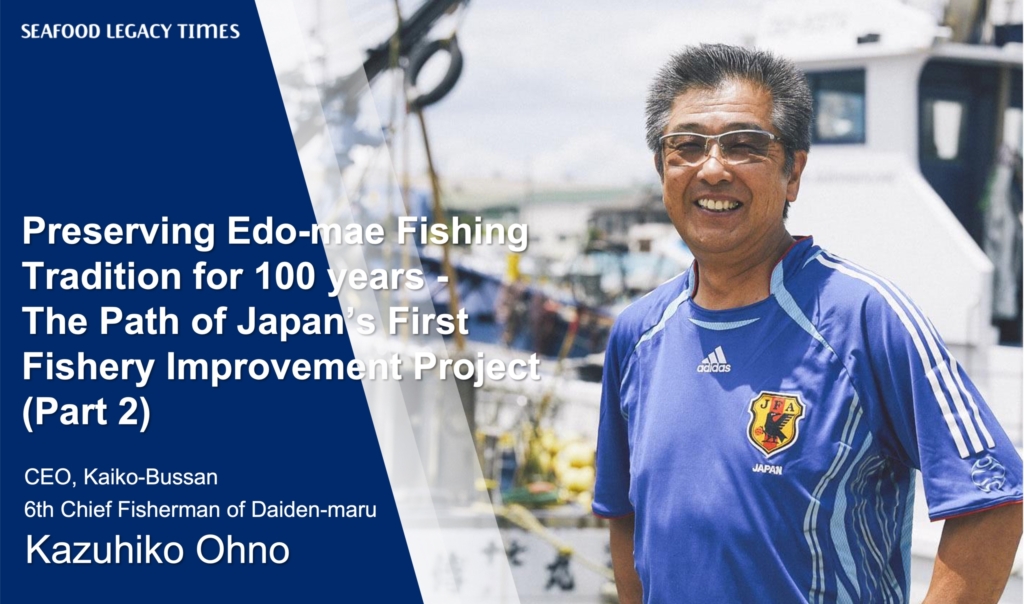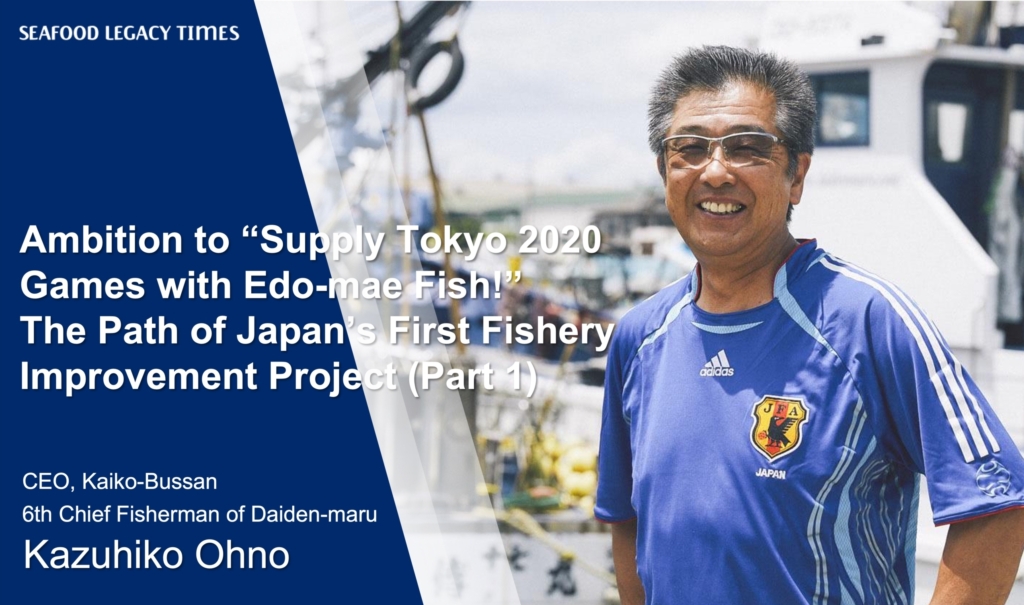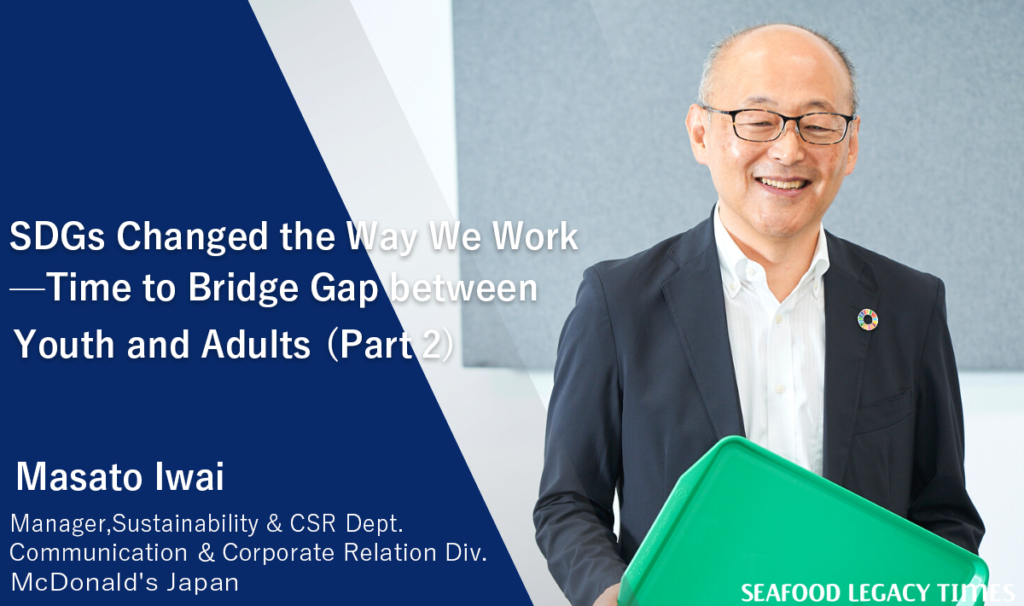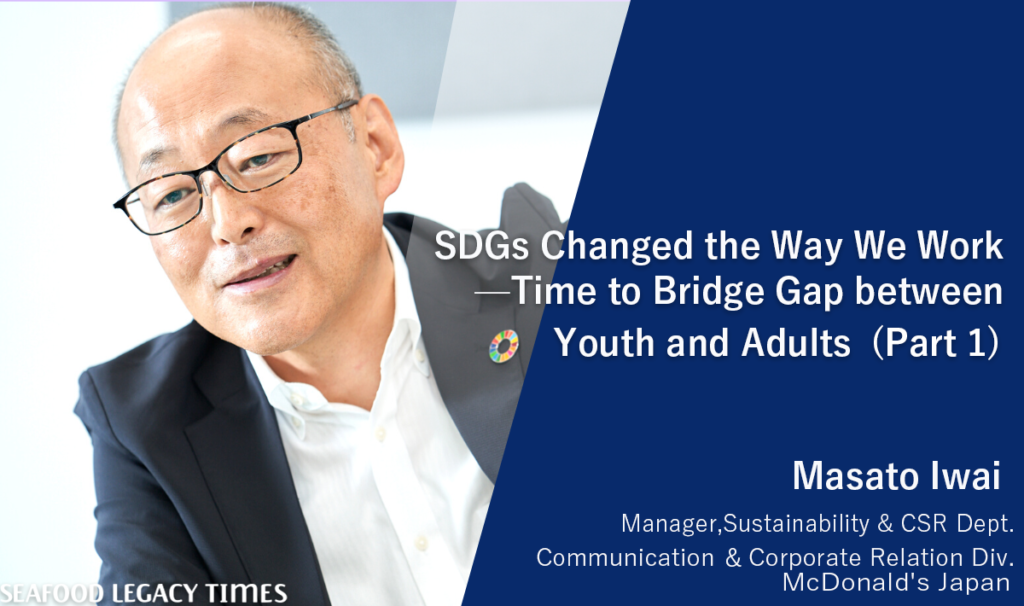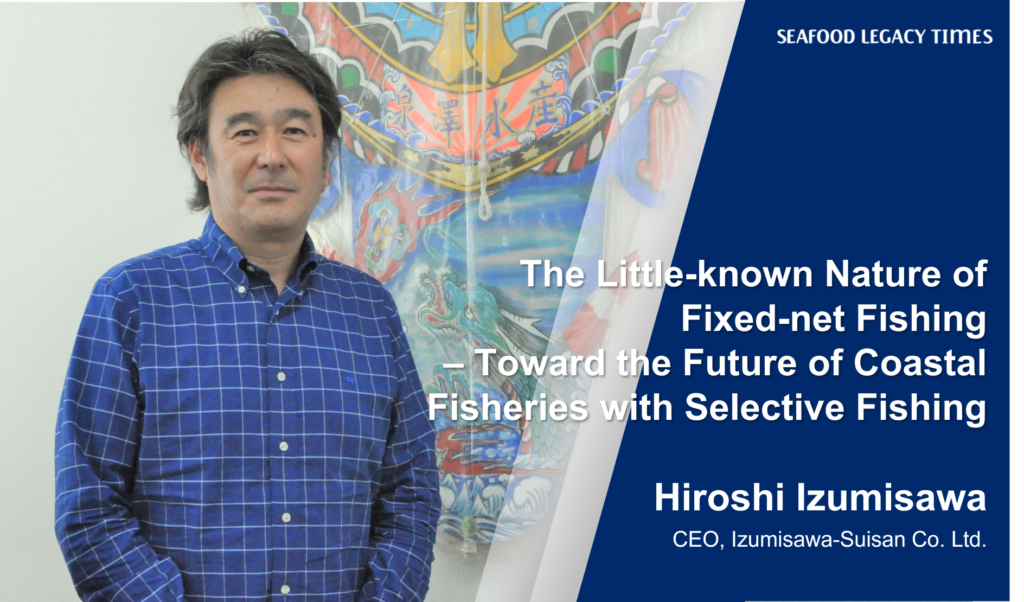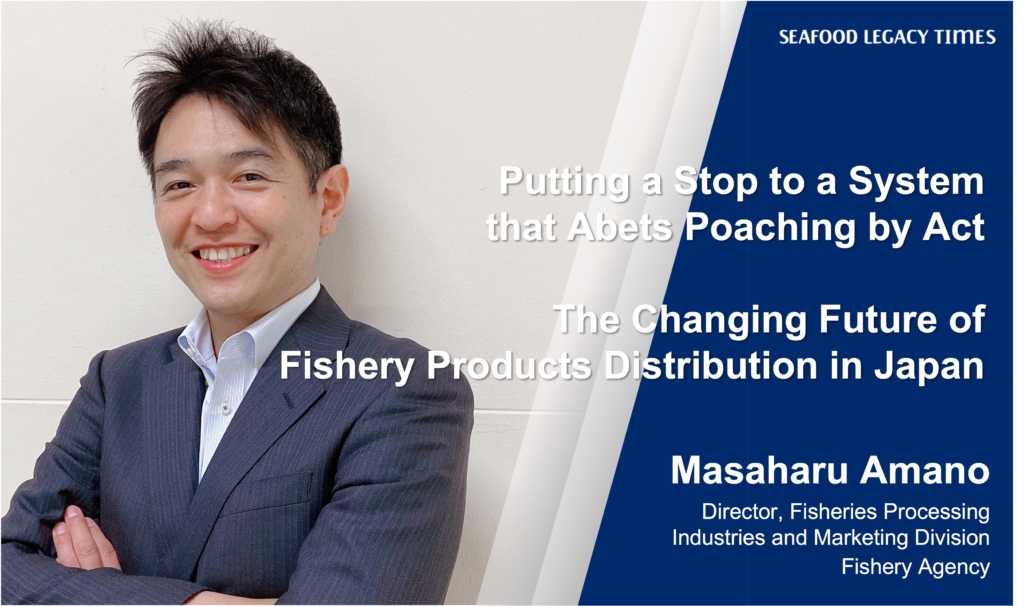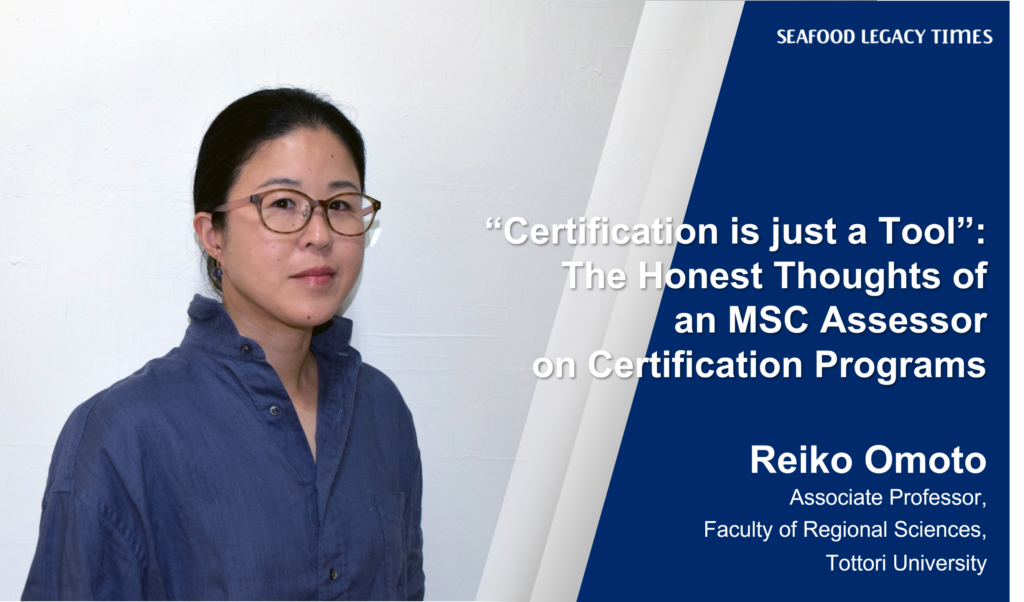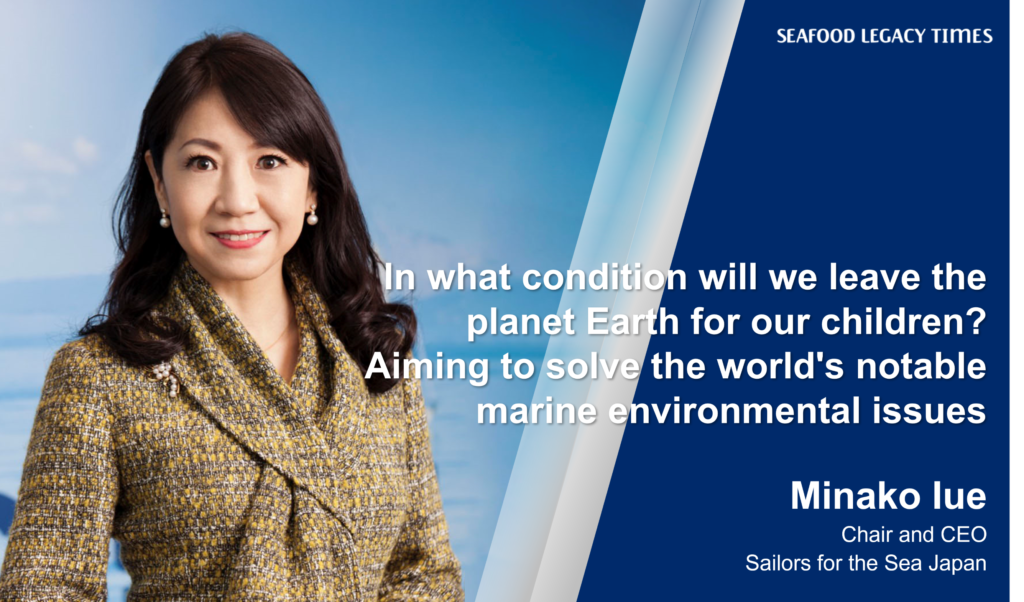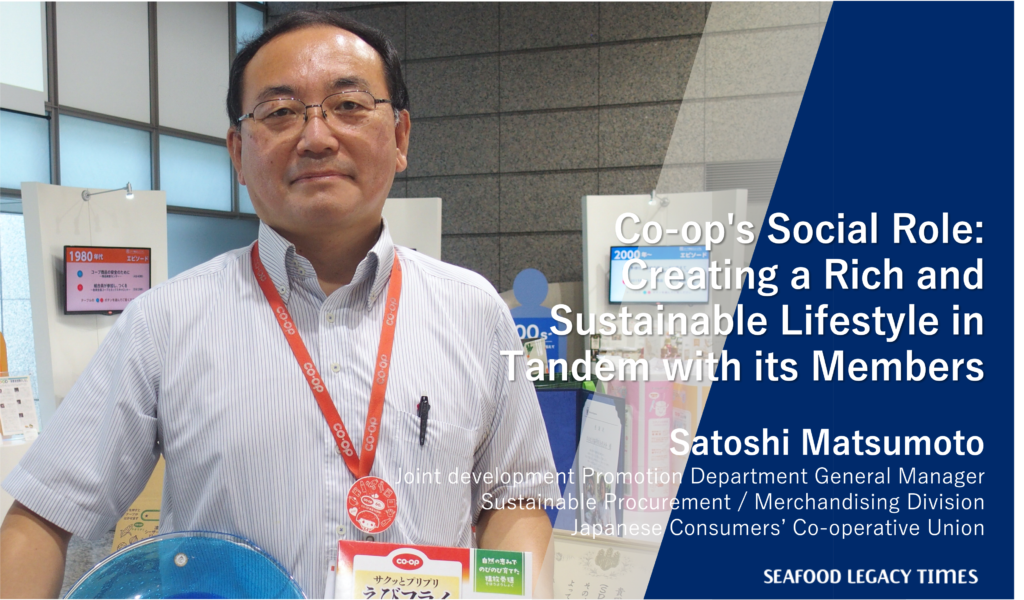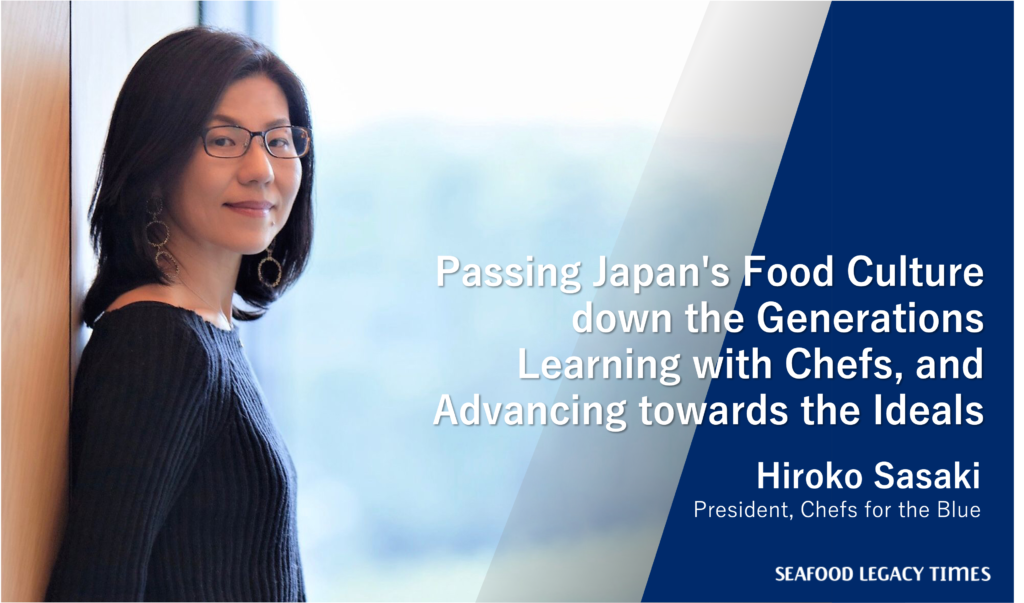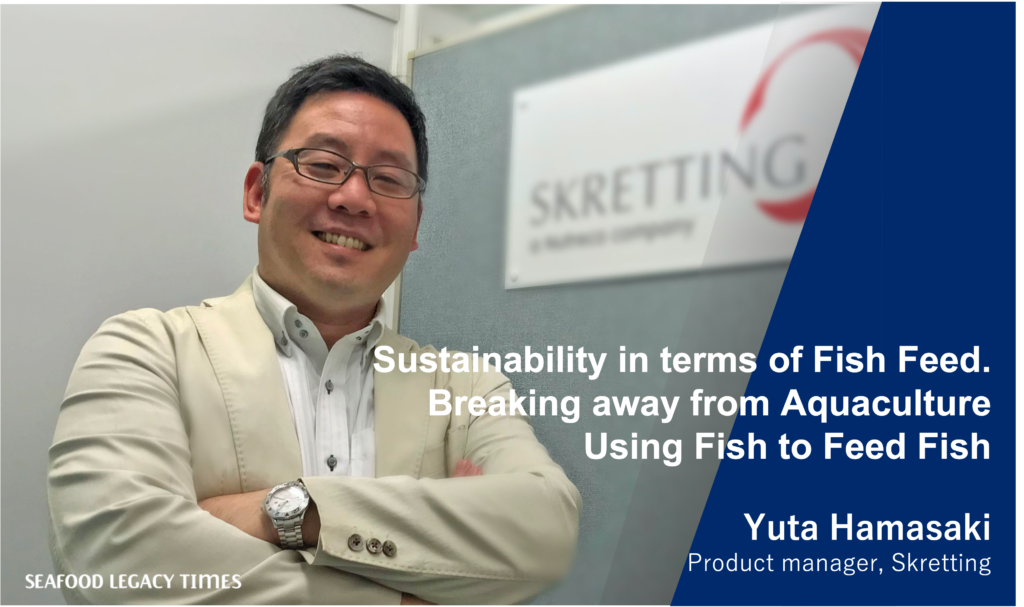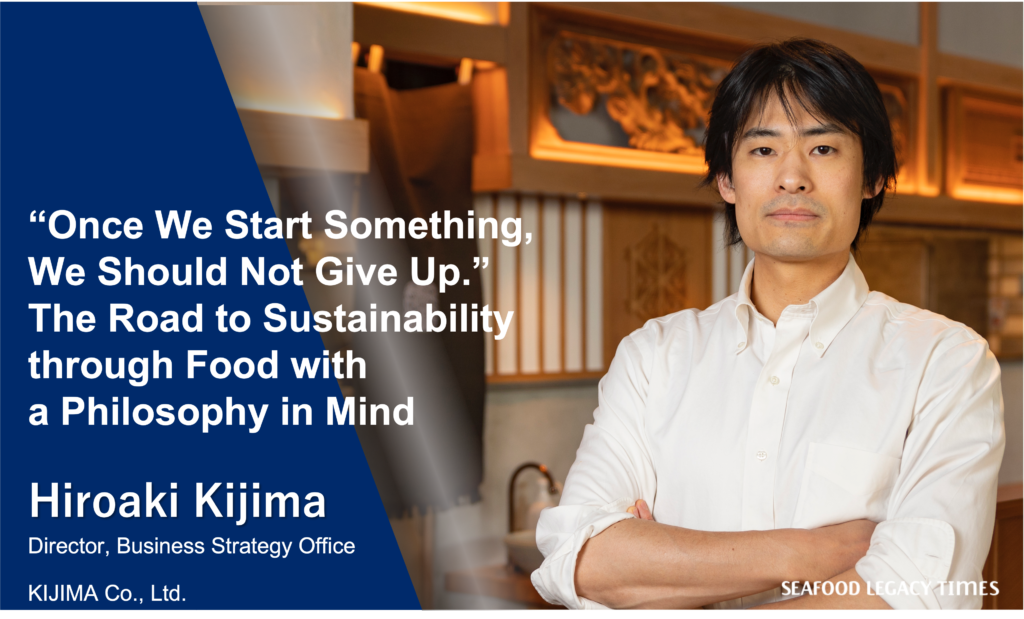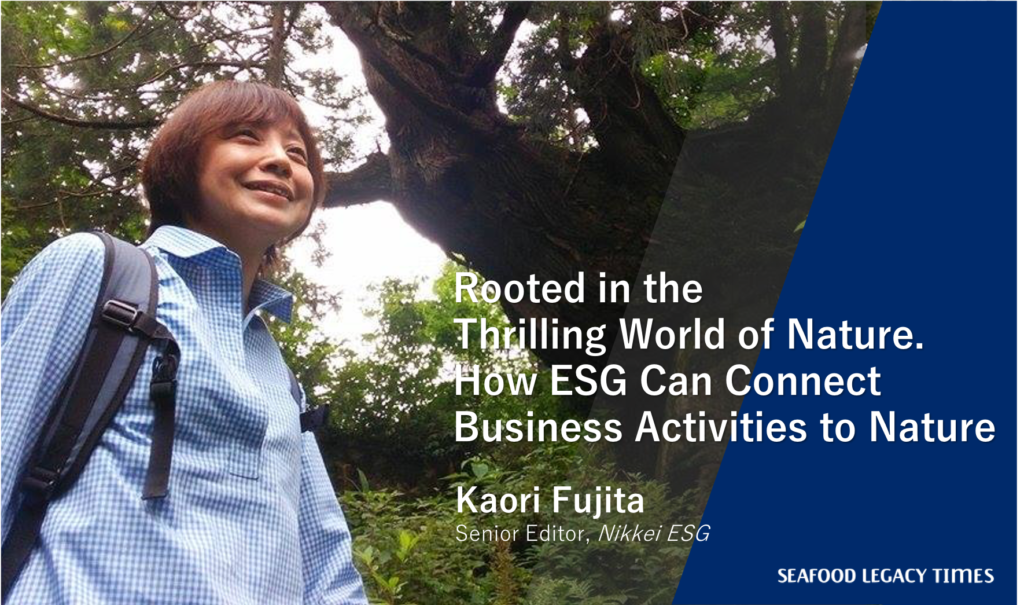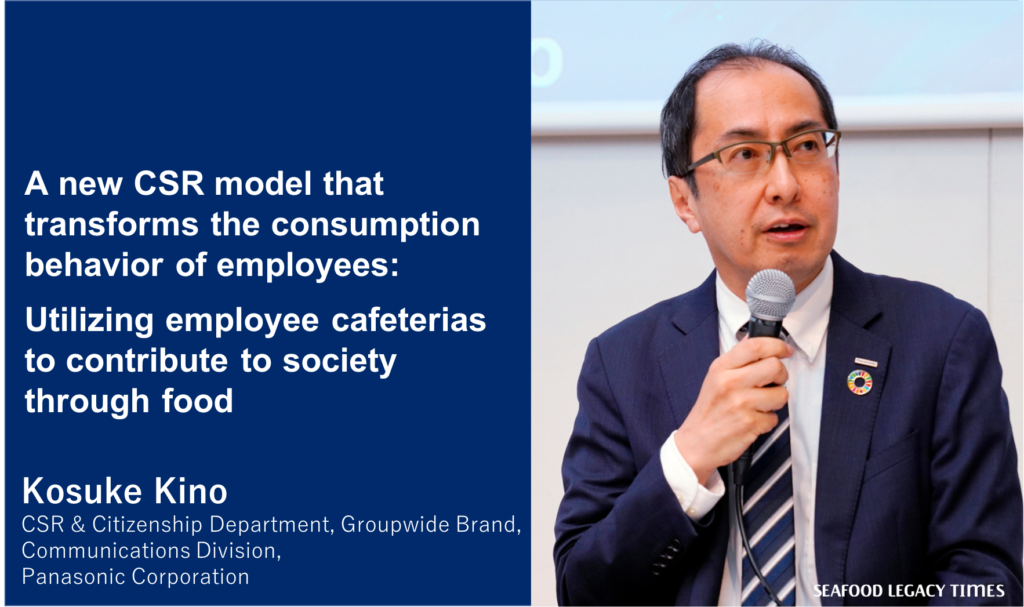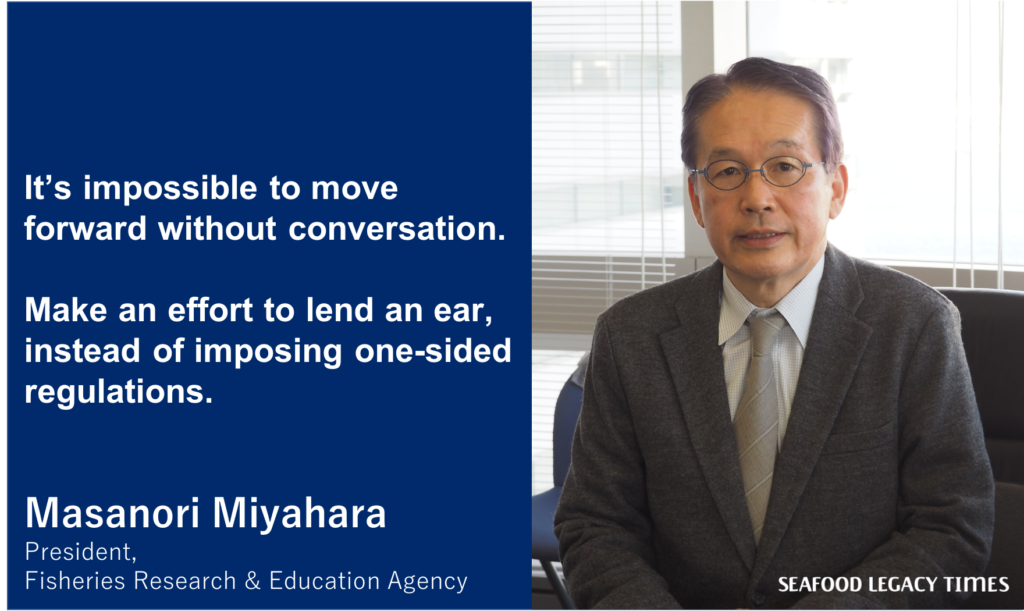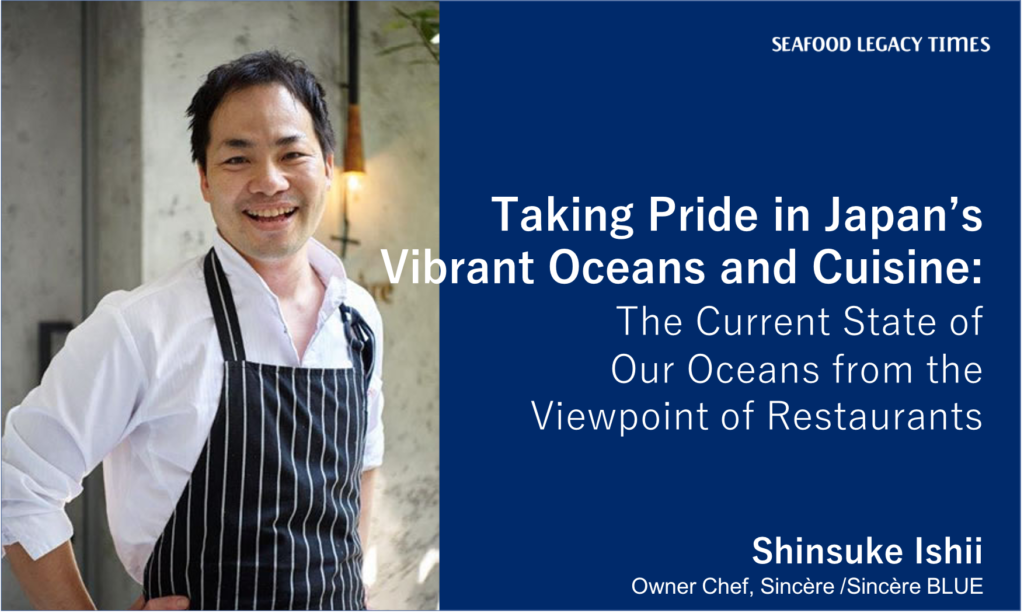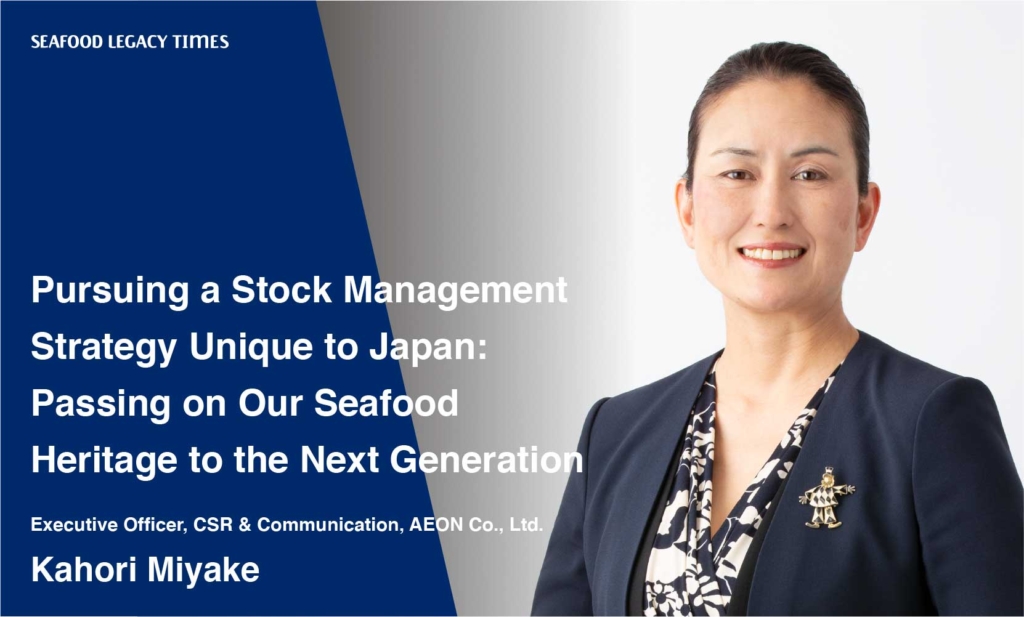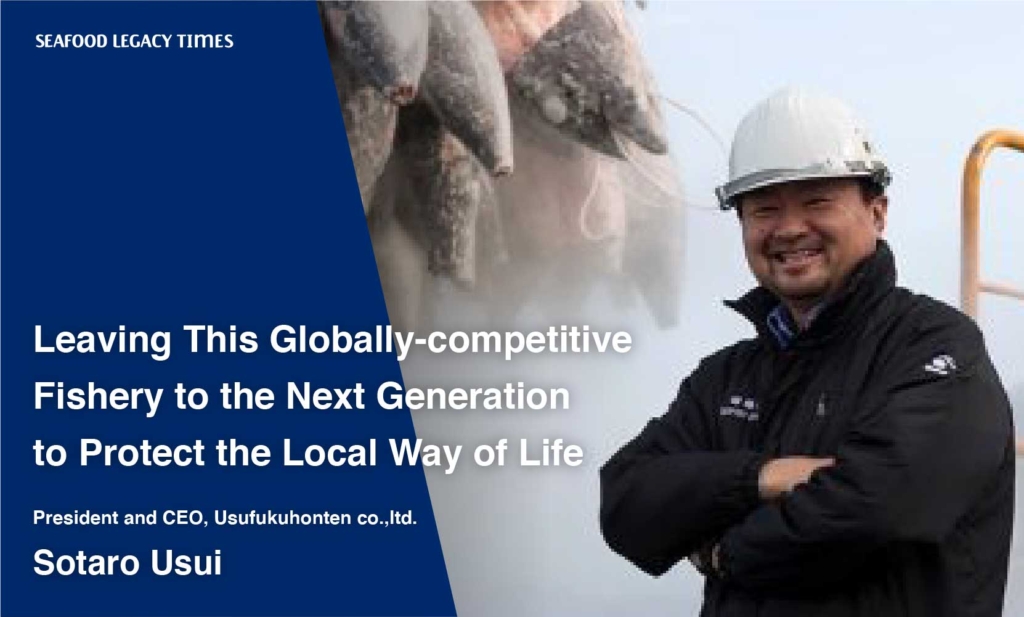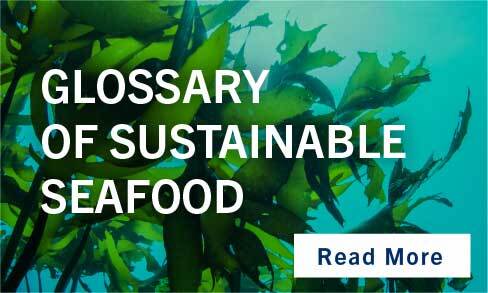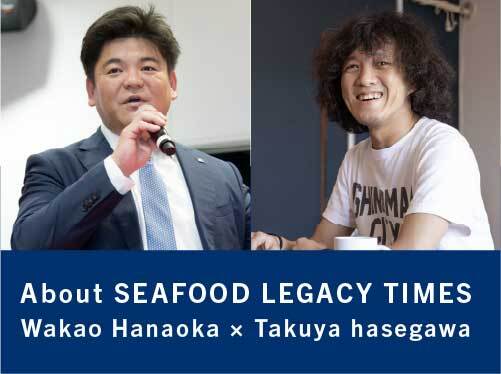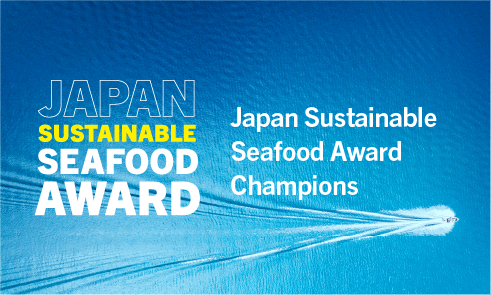
_-1024x606.png)
The pursuit of sustainability has become an essential consideration in the aquaculture sector, a global growth industry. In Part 1 of this interview, we spoke to Jorge Díaz Salinas, Sustainability Manager at Skretting, a leading aquaculture feed company in the world, with a focus on Skretting’s three sustainability pillars as laid out in its Sustainability Roadmap 2025. (<<<Read Part1)
In Part 2, we will speak to Jorge about collaborating with stakeholders to promote sustainability, including working with the aquaculture industry in Japan.
――How many suppliers do you currently do business with?
We work with around 4,000 suppliers worldwide, including suppliers of not only marine ingredients but also all other kinds of ingredients.
――According to Skretting’s responsible sourcing policy for marine ingredients, the company requires suppliers from so-called “high-risk” countries to take certain actions.
First, we require documentation that allows our procurement team to make decisions on what to purchase and how the purchase will be made. This is also to let suppliers know exactly what we are looking for.
What is non-negotiable is the supplier’s adherence to our Code of Conduct. For example, they must not engage in IUU (Illegal, Unreported and Unregulated) fishing or be involved in slave labor or child labor.
Our ultimate goal is to have 100% of our ingredients derived from marine resources (“marine ingredients”) be certified ingredients or ingredients sourced from fishery improvement projects (FIP) by the year 2025. While the easiest way for us to achieve this goal may be to withdraw from high-risk countries, suppliers in those countries also need some form of support to meet sustainability criteria.
We offer support for FIPs in order to help such suppliers step up, thereby lowering our operational risk. For example, Mauritania is a high-risk country according to our sourcing policy, but we offered support for an FIP there several years ago.
Engaging with and supporting suppliers leads to greater production of certified ingredients, which boosts the amount of certified ingredients we can use. While Asia and Africa have the least certified ingredients, we are currently exploring possibilities in Southeast Asia as well.
――What is the key to establishing a relationship of trust with suppliers?
I believe it is transparency and collaboration on both sides. It has to be mutual. The only way to become better is to be transparent, i.e., by admitting that our status quo is not good enough and by showing it, as well as to work with stakeholders and partners that can help us improve.
If we cannot know exactly what the suppliers are doing, it will be difficult for us to offer support for what they need to do. Transparency and collaboration can be said to be core values that underpin our everyday work.
――It must be tough to handle and support so many suppliers.
With so many suppliers, we need to handle various levels of risk, which makes our tasks extremely complex.
To begin with, we only do business with suppliers that agree to our Code of Conduct. The Code of Conduct is a non-negotiable minimum standard on which we will not compromise.
We then adopt a risk-based approach. We have started working with EcoVadis* as part of this approach. EcoVadis is a platform that helps us to understand and mitigate potential sustainability risks in our supply chain. We have mapped all our suppliers and reviewed their risks related to the environment, labor, human rights, and sustainable procurement, through which we have identified some of the companies with the highest risk. We then conduct in-depth audits of these companies based on various risks and take the necessary action.
――Are the audits performed by a third party?
The audits are currently performed by our team internally, but as mentioned earlier, we are working with a third-party organization called EcoVadis. We are in the process of encouraging suppliers to adopt the platform as a benchmark so that we can get a better idea of which stage each supplier is at.
――How are you working with Skretting’s team in Japan (Skretting Japan Co., Ltd.)?
Skretting’s global and local teams share their respective experiences and actions taken around the world with each other, and we have a good working relationship with our team in Japan. Local actions are sometimes put into practice globally. We are especially proud of the efforts of the team in Japan, and they have contributed to many case studies that are featured in our global sustainability report.
One example of global-local collaboration is the implementation of the new ASC Feed Standard. We are providing support for our team in Japan to learn more about this standard and to implement it in order to raise the sustainability level of our operations in Japan.
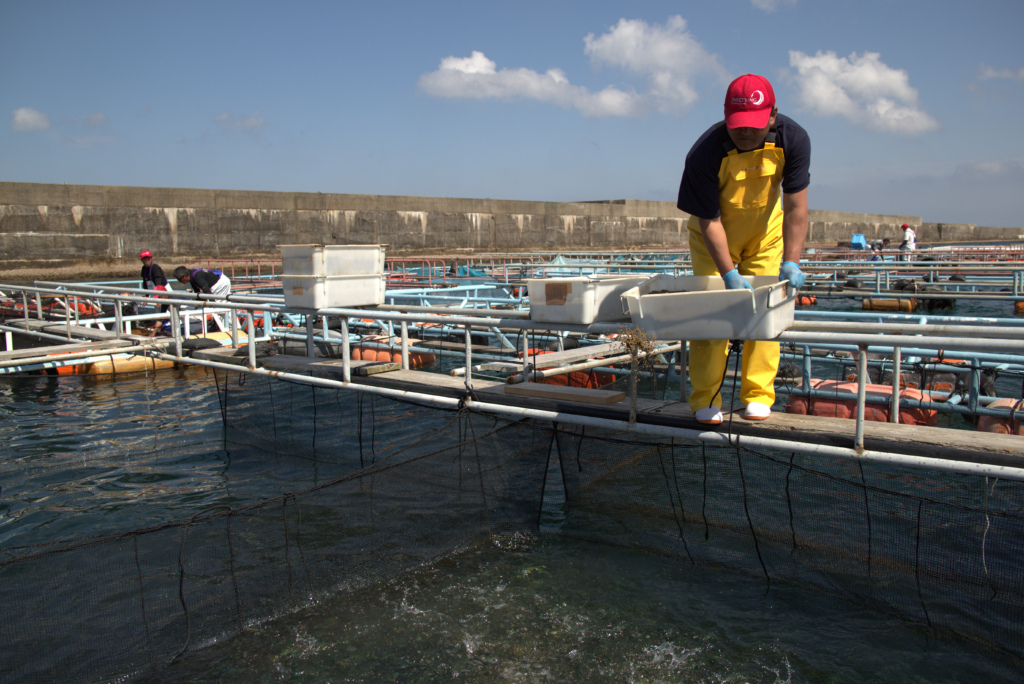 An aquaculture farm in Japan whose operations are supported by Skretting (photo courtesy of Skretting)
An aquaculture farm in Japan whose operations are supported by Skretting (photo courtesy of Skretting)
――How do you view the challenges and opportunities of the aquaculture industry in Japan?
I think this is a great opportunity for Japan’s aquaculture industry to raise its sustainability level by implementing the ASC Feed Standard. This is a highly demanding standard, so it gives the industry a chance to challenge itself to make the transition to sustainable aquaculture. This is not an easy task for us at all, as costs will go up. Still, I believe it will lead to greater confidence in seafood in the long run. This change should be embraced by the entire value chain, and retailers should ultimately give preference to producers that are committed to the implementation of a strict feed standard.
――Are there any targets for sustainability initiatives in Japan?
Our global Sustainability Roadmap applies to all of our operations, so I expect the roadmap to be adopted in Japan as well and its criteria satisfied.
However, there are some challenges with marine ingredients for aquaculture feed. It is difficult to procure certified ingredients, and the amount available for use is very small. In this regard, our goal is to get involved in FIPs in Japan and increase the percentage of certified ingredients used in our operations in Japan.
――Skretting is currently the only company in Japan that produces feed that meets the ASC Feed Standard, and we hear that you have been receiving a growing number of inquiries recently from aquaculture producers that are interested in obtaining certification. How will you support these fish farmers?
For aquaculture producers in Japan to maintain ASC certification, they are required to use ASC-certified feed from January 2025. We are already working to implement this standard, and our plant in Chile was the third in the world to be audited. We will share the feedback gathered from this audit with Skretting’s operating companies in various countries, especially Japan, to ensure that they are well equipped to support producers in their initiatives.
――Could you tell us more about Skretting’s approach to feed companies in Japan? Will you work with your competitors to help them improve and meet the ASC Feed Standard? Or will you continue to be the only one feed company in Japan working on the ASC Feed Standard?
We approach this as a pre-competitive initiative, and we hope our competitors will join us under the same framework to generate more interest in sustainability in Japan and raise our respective sustainability levels. The more companies there are adopting the ASC Feed Standard, the better the situation will be for Japan’s industry as a whole. It is not possible to do things alone. I have heard that ASC Japan is currently supporting other feed companies to be part of this endeavor and that discussions are underway.
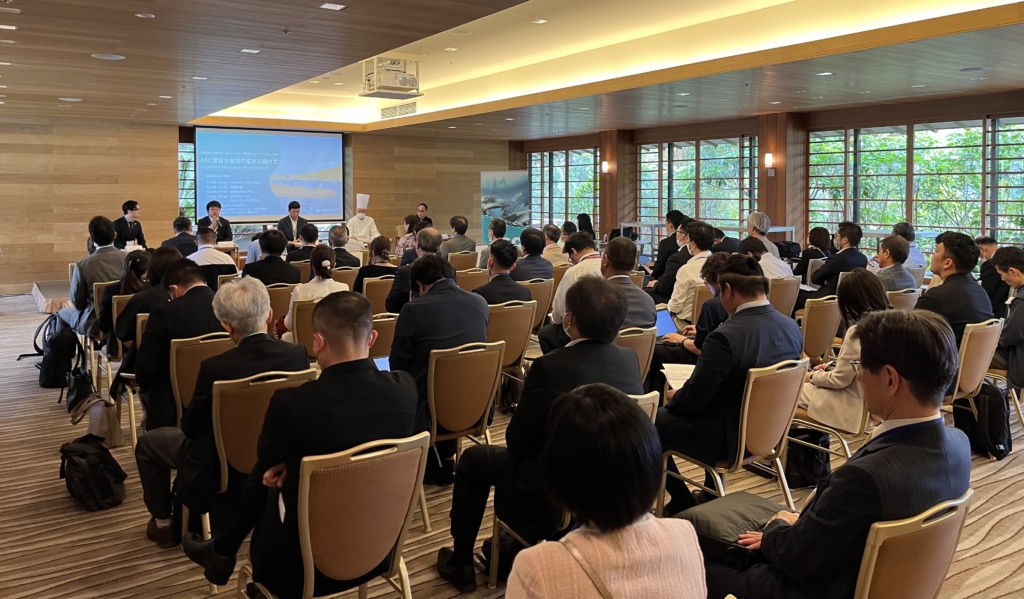 ASC Japan and Seafood Legacy Co., Ltd., held a seminar on expanding the use of ASC-certified seafood at Hilton Tokyo Bay on May 26, 2023.
ASC Japan and Seafood Legacy Co., Ltd., held a seminar on expanding the use of ASC-certified seafood at Hilton Tokyo Bay on May 26, 2023.
――Meeting the ASC Feed Standard seems to be a tough challenge.
It bears repeating that the ASC Feed Standard is extremely demanding, and it is very difficult to meet its criteria. Nevertheless, it is the right thing to do, and we must do better as an industry and make a positive impact on the environment and society.
I remember a conversation I had when ASC first shared a draft of this Feed Standard with us. I told them that it would be extremely difficult for us to implement such a standard, to which they responded, “This is not a standard that can be achieved at the moment.”
“We know that it will be difficult, but the spirit of this standard is to create a movement where your company can make this your goal with other feed companies then following suit, allowing all of us to achieve the same targets together,” they explained.
When I heard this, I thought it made a lot of sense. I understood the spirit of this standard and realized that if we work toward compliance with this standard, we will be able to move in the right direction. This is not a competition to achieve sustainability but a collaboration to drive the required change and transformation in a collective manner.
There is no point in a situation where we are pursuing sustainability targets but no one else is. We want to ensure that all of us share the same goals and are moving in the same direction.
It is also necessary for parties downstream in the supply chain to understand the importance of certified fishery products. I know Seafood Legacy has been holding events and other activities in Japan to raise awareness in this regard. I hope that besides your company, other competitors will also get involved and join the movement. Our team in Japan is also working hard to build momentum for sustainability in Japan.
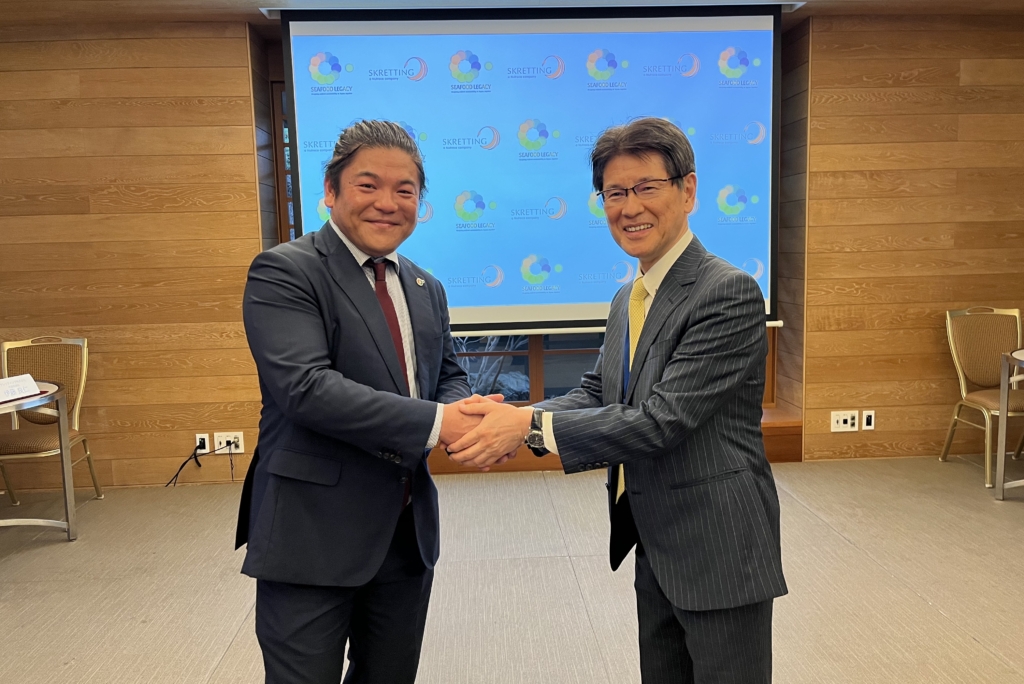 Skretting Japan Co., Ltd. (right: Yoshihito Ito, General Manager), and Seafood Legacy Co., Ltd. (left: Wakao Hanaoka, CEO/Founder), entered into a partnership to improve sustainability in Japan’s aquaculture industry on May 26, 2023.
Skretting Japan Co., Ltd. (right: Yoshihito Ito, General Manager), and Seafood Legacy Co., Ltd. (left: Wakao Hanaoka, CEO/Founder), entered into a partnership to improve sustainability in Japan’s aquaculture industry on May 26, 2023.
――There is a feeling that consumer awareness of fishery certification in Japan is still rather low. How do you think we can increase consumer interest in this regard?
Of course, consumers are the ones who consume seafood, but I think the expectation that consumers ought to know about various certifications is a little excessive. I believe producers, distributors, processing companies, and other parties that can deliver sustainable seafood through the value chain are the ones who should be more interested in certifications. It is important for consumers to be able to trust that the food they are eating is safe, healthy, and sustainable, but this requires those of us in the value chain to do our job and mitigate risks in our respective operations to the best of our knowledge.
We support this certification system because we believe this is the right thing to do. The ASC Feed Standard is a very challenging standard with respect to the various ingredients we purchase, but with such a standard in place and the entire industry working toward the same goal, I believe we will be able to step up.
――As a businessman working on the global stage, you get to travel all around the world. Online communication is now easier than ever, but have you missed your home country of Chile? Do you have the chance to go back home once in a while?
Of course, I miss my home country. I miss my roots, my family, and my friends. At the same time, I also feel very fortunate when I look back on the years I spent working in Norway. Skretting offers many opportunities and is a company that cares a lot about its employees.
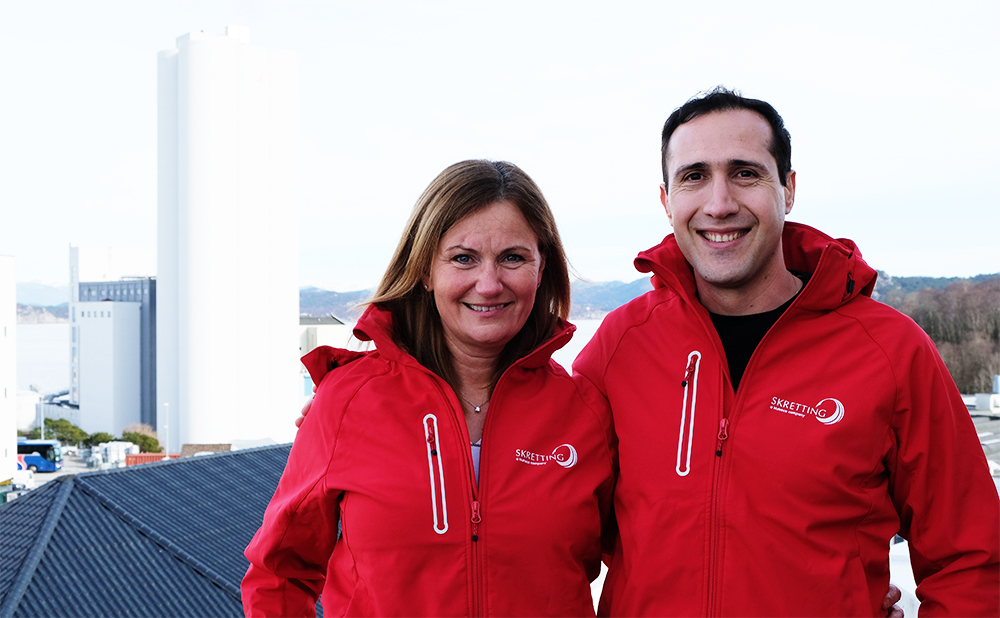 A photo taken with Therese Log Bergjord (left), CEO of Skretting, at the company’s headquarters in Stavanger, Norway (photo courtesy of Skretting)
A photo taken with Therese Log Bergjord (left), CEO of Skretting, at the company’s headquarters in Stavanger, Norway (photo courtesy of Skretting)
I am extremely grateful for the chance to live in Norway. It is a magnificent country. Everything works well, people have equal rights, and there is a lot of respect for each other. I have also had the opportunity to visit other countries and learn about different cultures to understand various situations around the world.
I hope I can return home to Chile as often as possible.
――What have you found most rewarding about working at Skretting?
This may sound cliché, but playing a role in the production of over 22 million servings of seafood around the world every day through Skretting’s feed is immensely rewarding. This shows that I, along with my colleagues, can have a huge impact. We need to make sure that these people can have access to safe, healthy, and sustainable seafood.
That is my motivation behind the work I do, and I will do everything I can to contribute to this.
――What is your next goal in your work?
I want to keep learning because I encounter different challenges every day. I hope I can learn more about the different realities surrounding sustainability in the different places where we operate and continue to engage with colleagues and stakeholders to help drive the change and transformation that the industry needs.
Jorge Díaz Salinas
Jorge Díaz Salinas was born in Santiago, Chile, in 1983. He studied communications at the Pontifical Catholic University of Chile, international marketing at King’s College London, and corporate sustainability at New York University. From 2009 to 2014, he worked at ProChile, an agency of Chile’s Ministry of Foreign Affairs. He joined Skretting in 2015. Since 2018, he has worked at Skretting’s headquarters in Stavanger, Norway, and he was appointed to his current position in September 2021.
Original Japanese text by: Chiho Iuchi




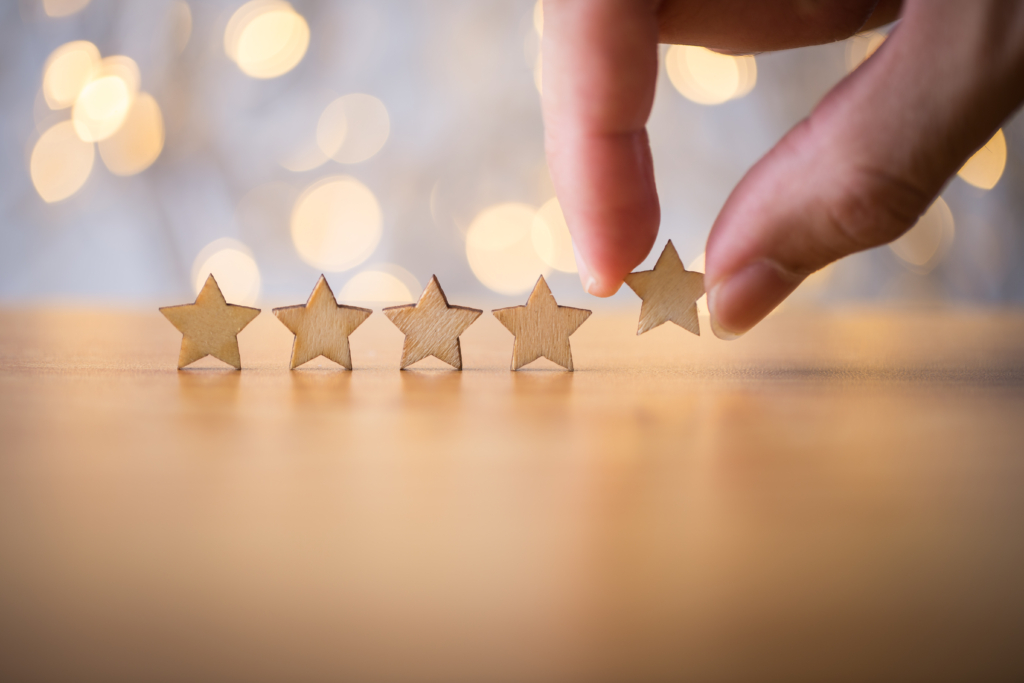




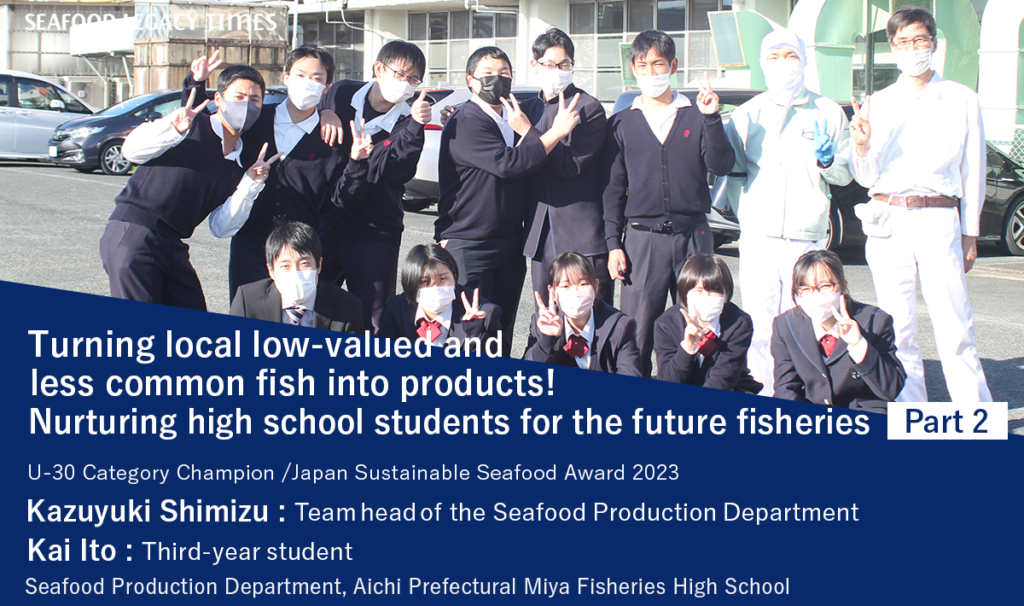
-1024x606.png)


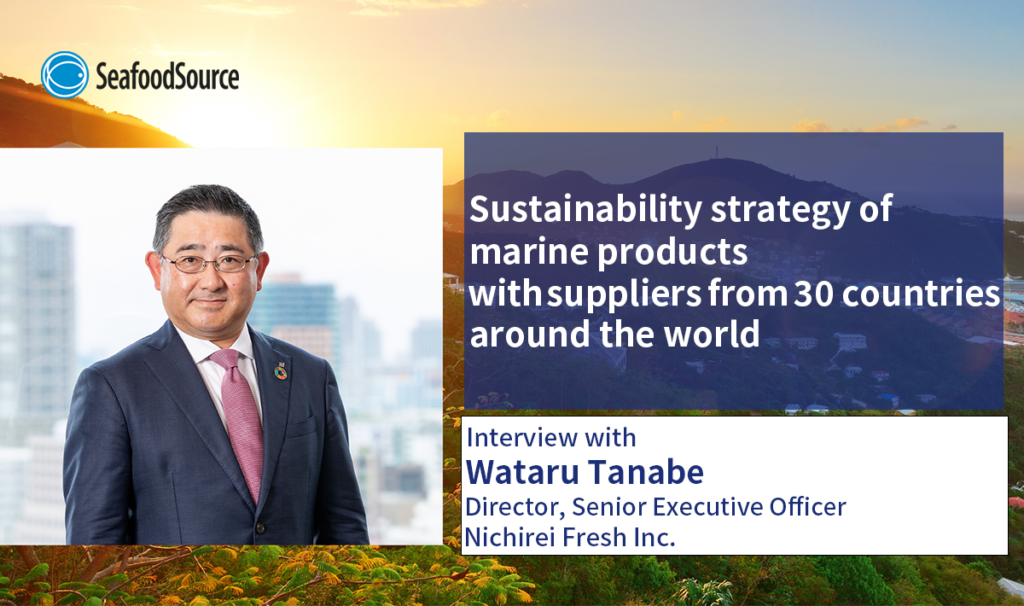
_-1024x606.png)

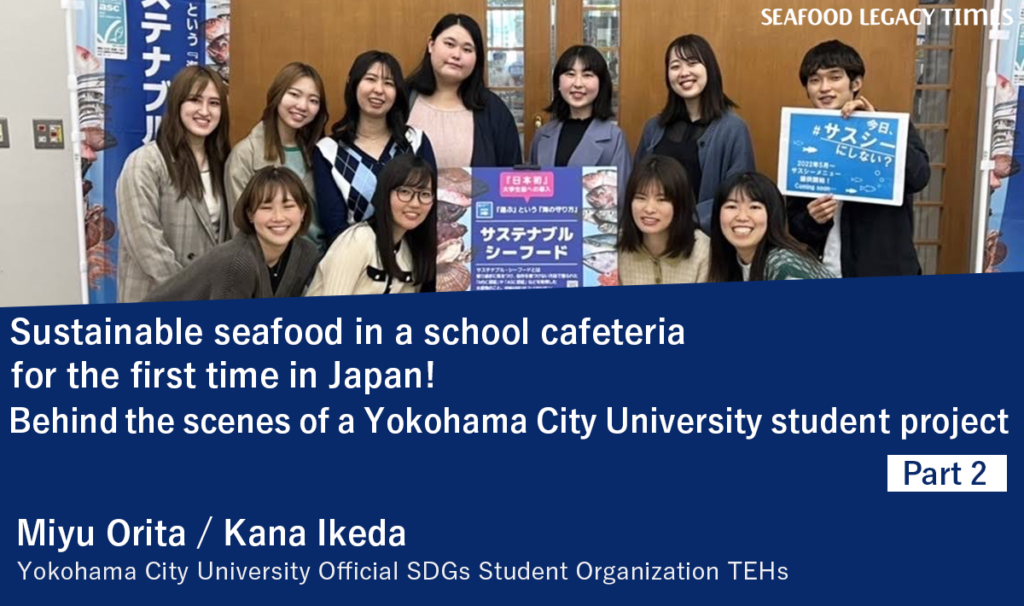
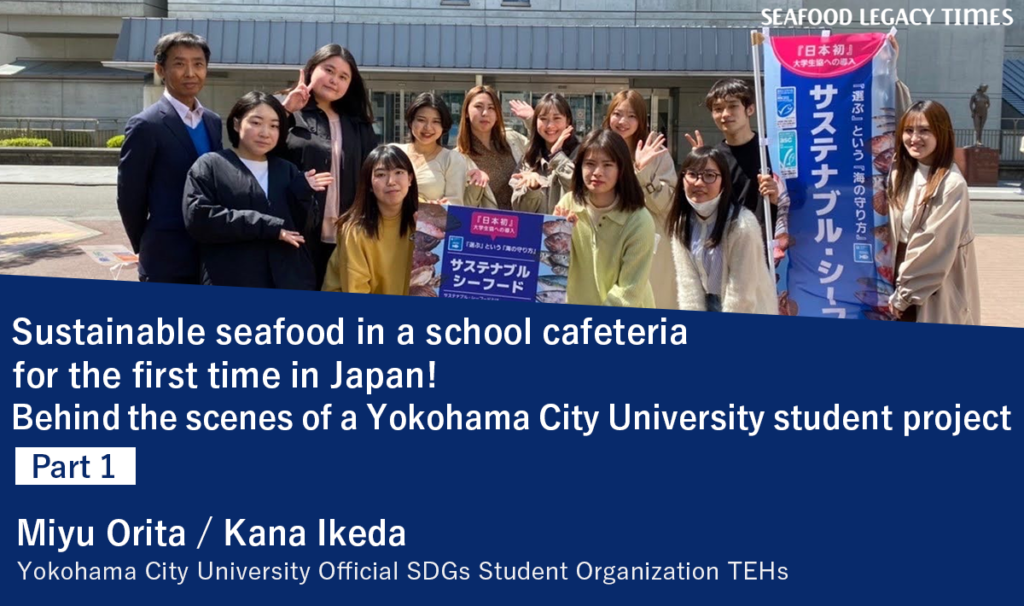



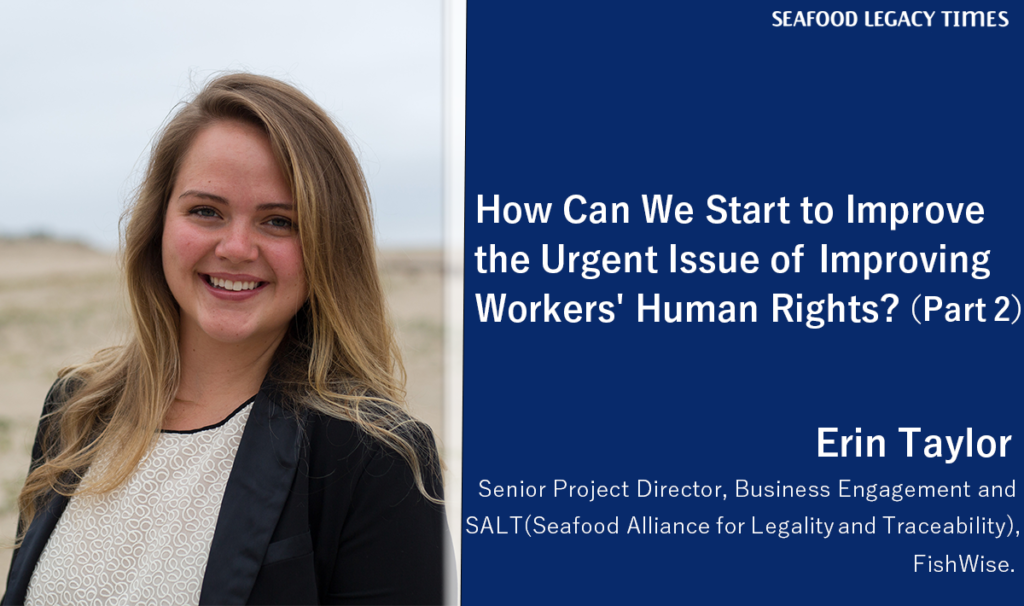
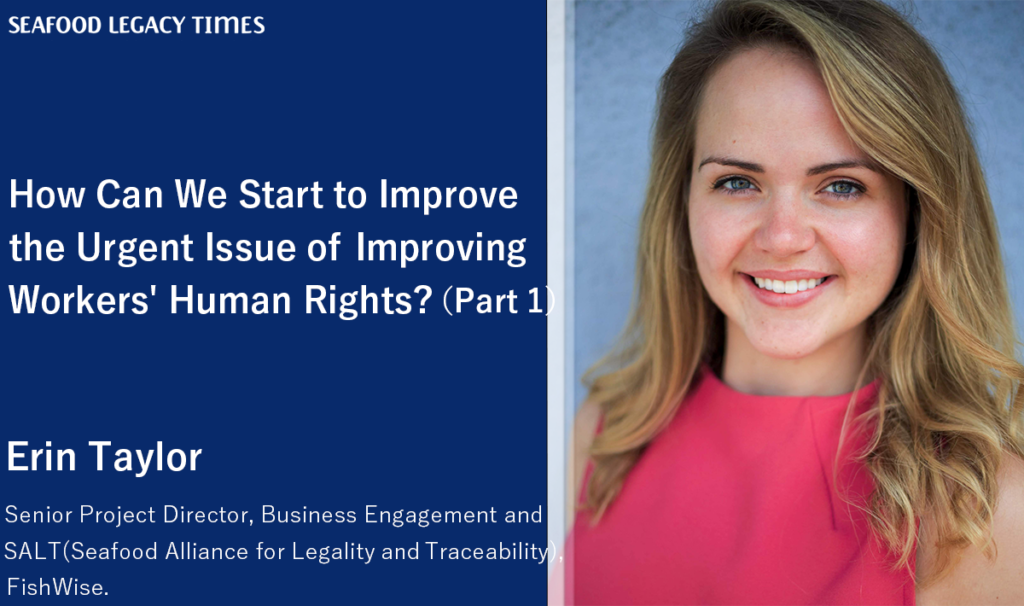
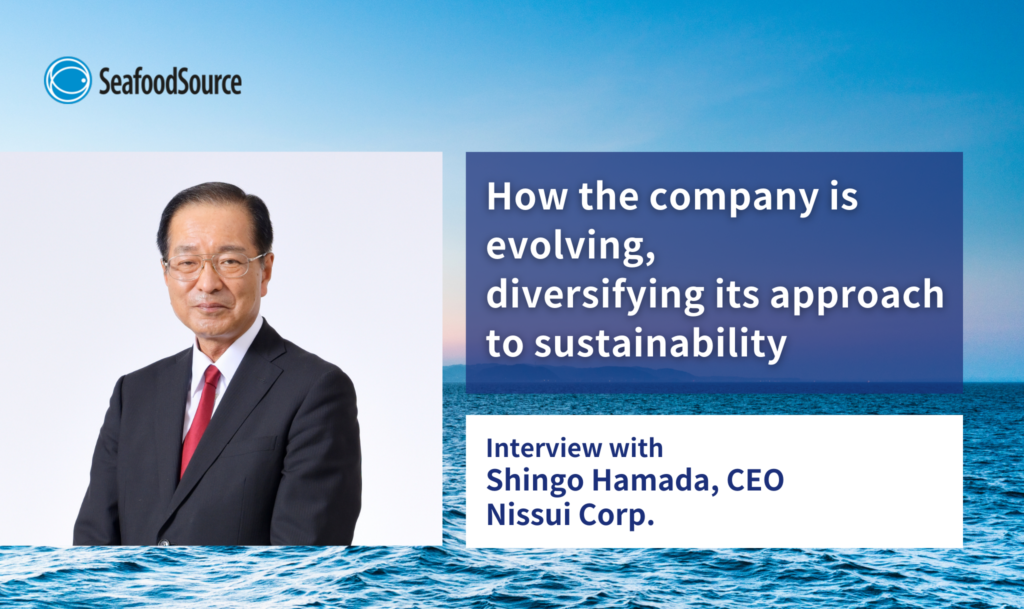




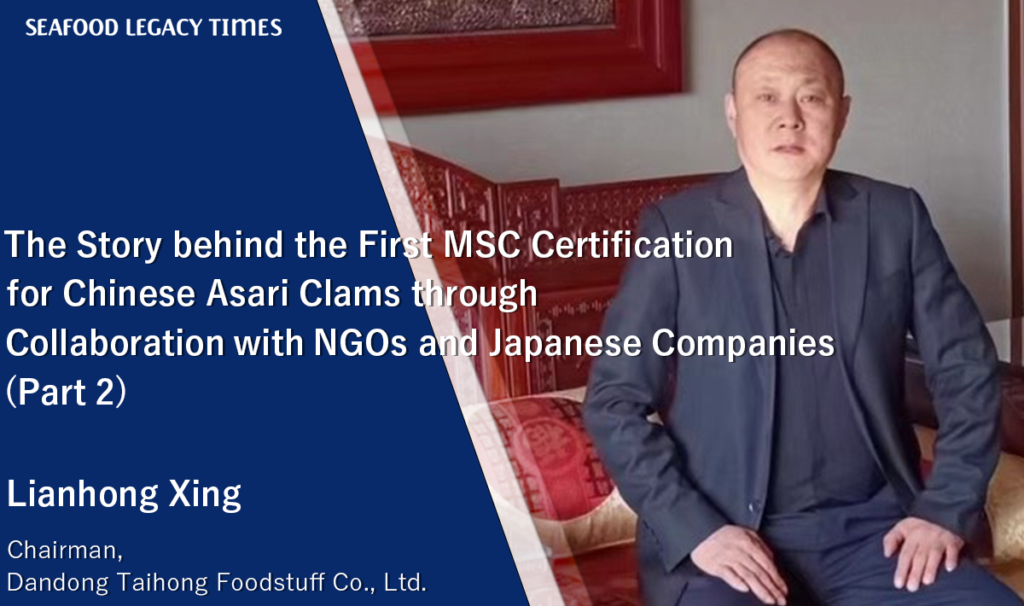
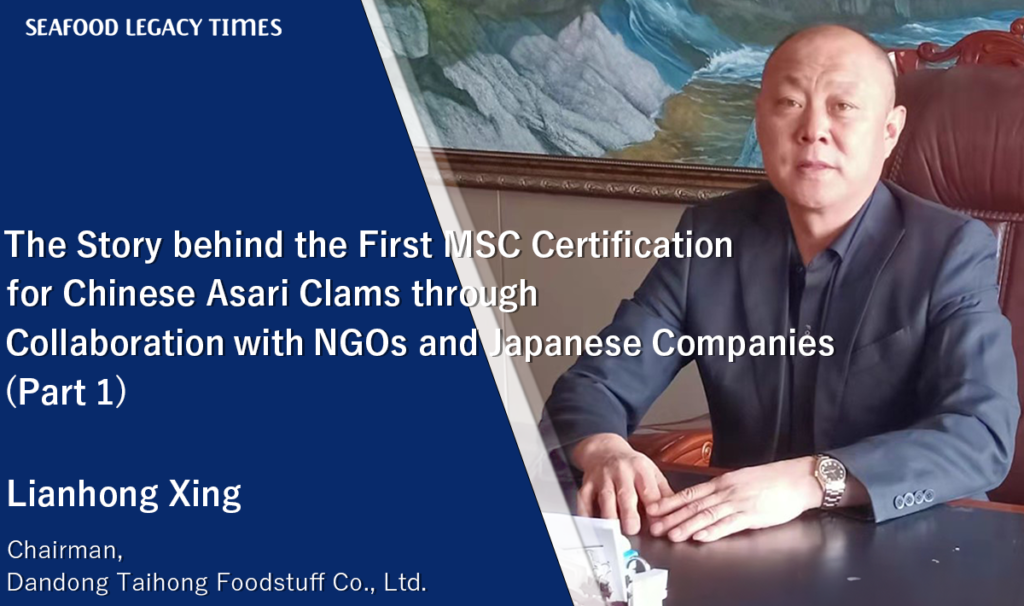

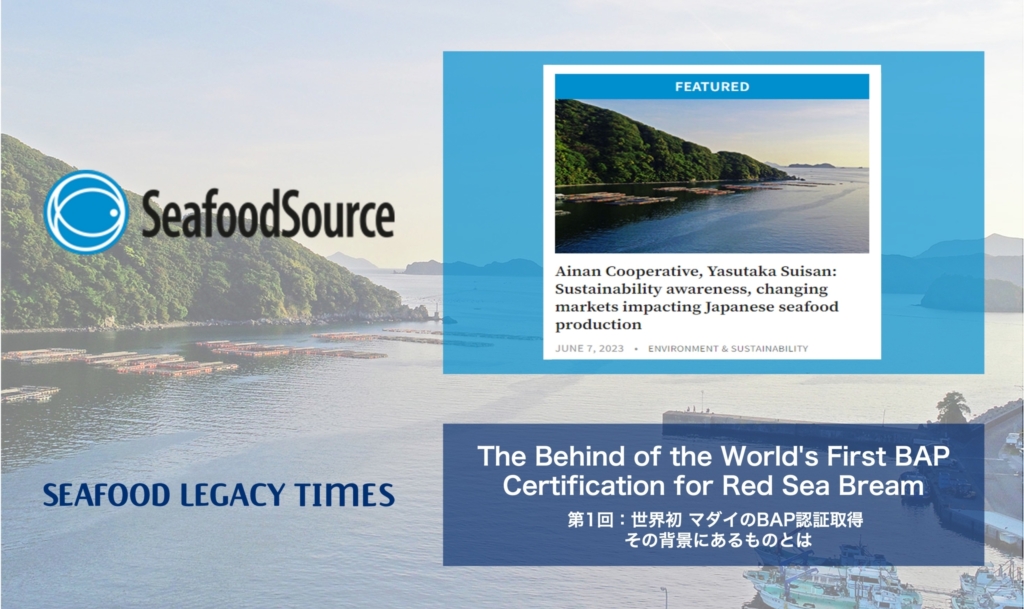

1_修正524-1024x606.png)


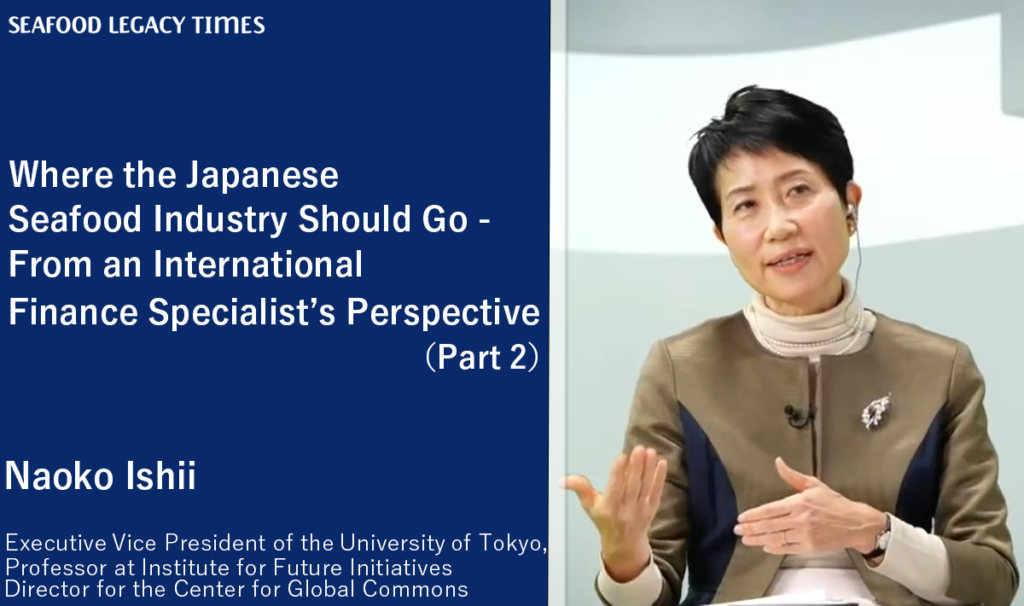







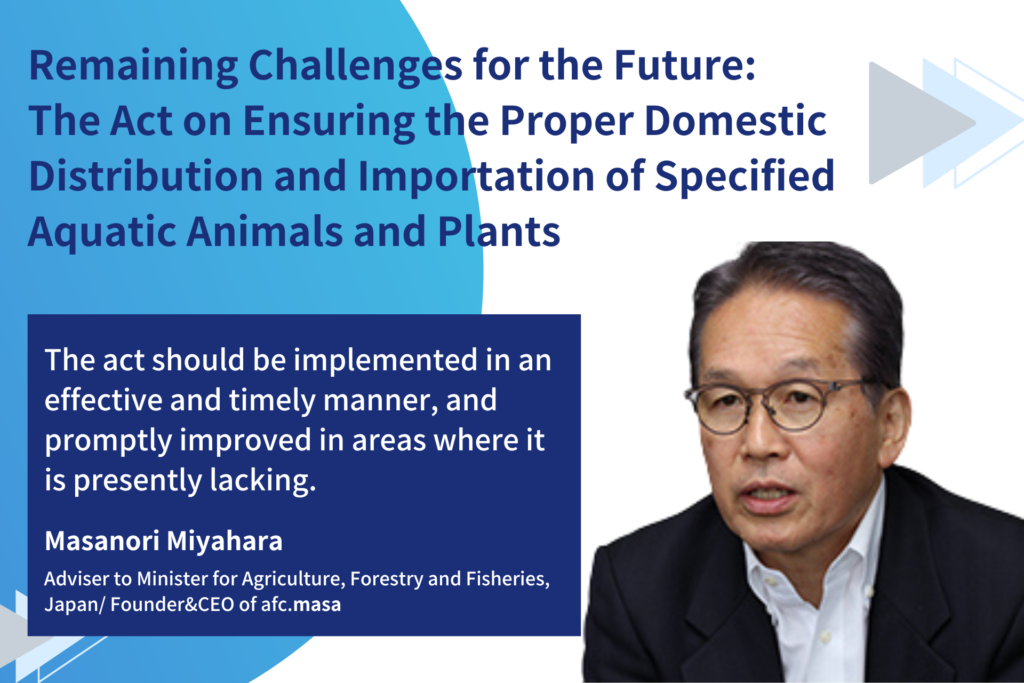
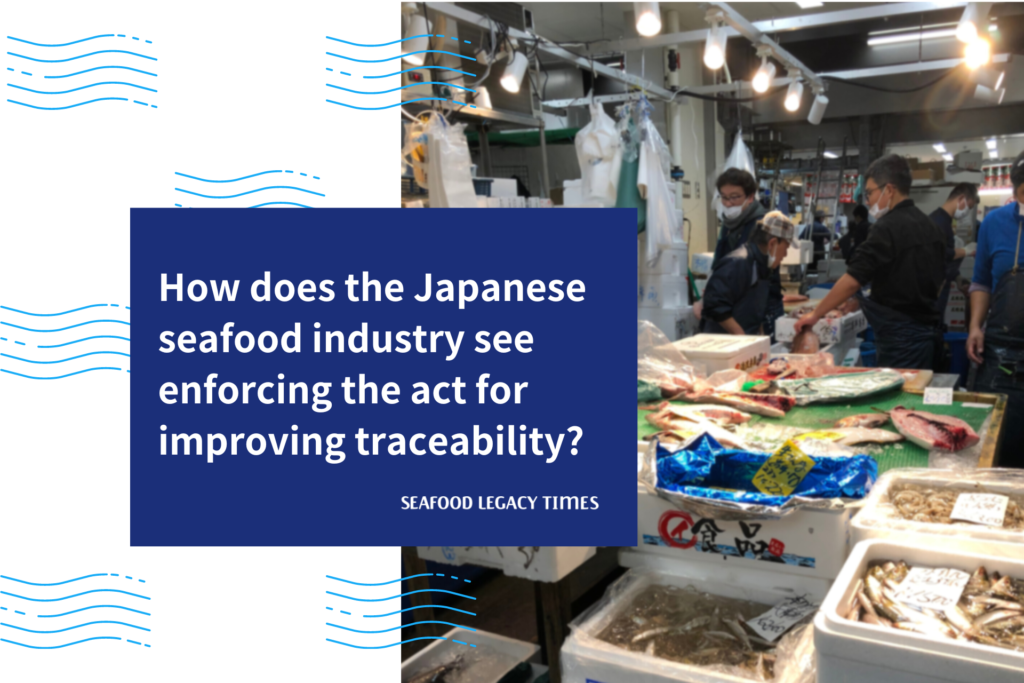



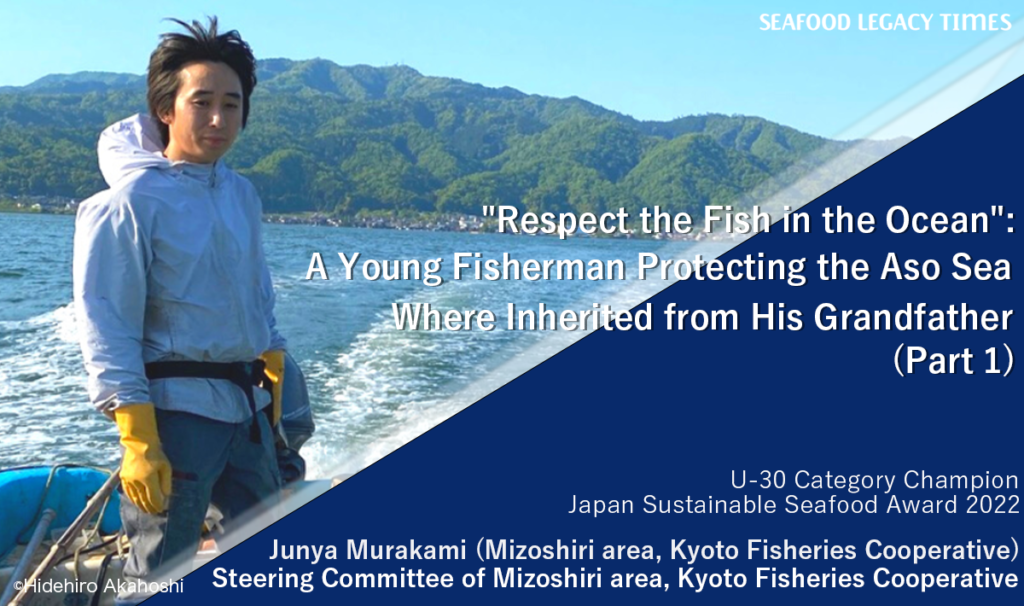
.2-1024x606.png)
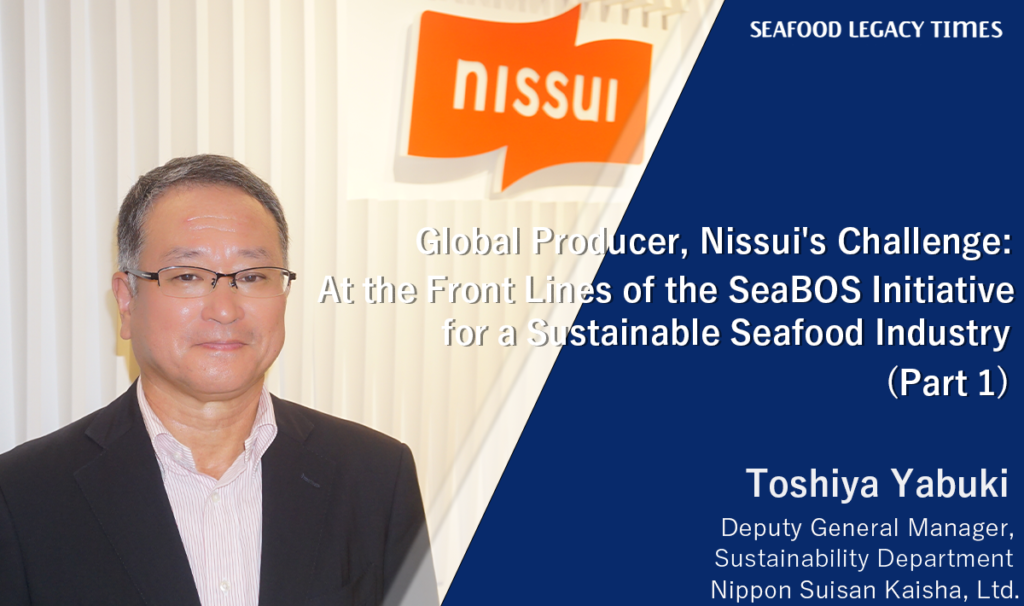
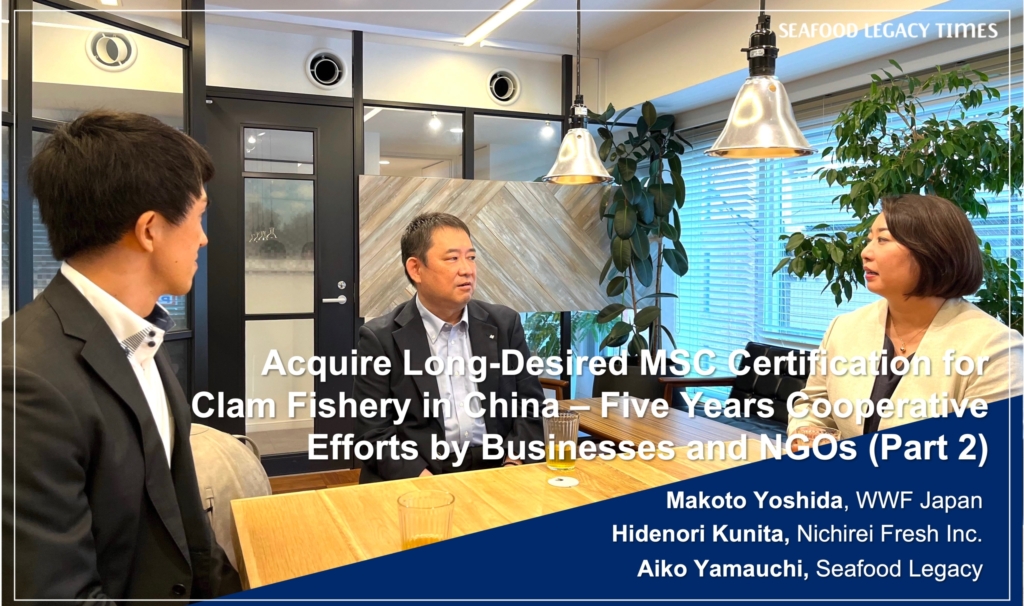
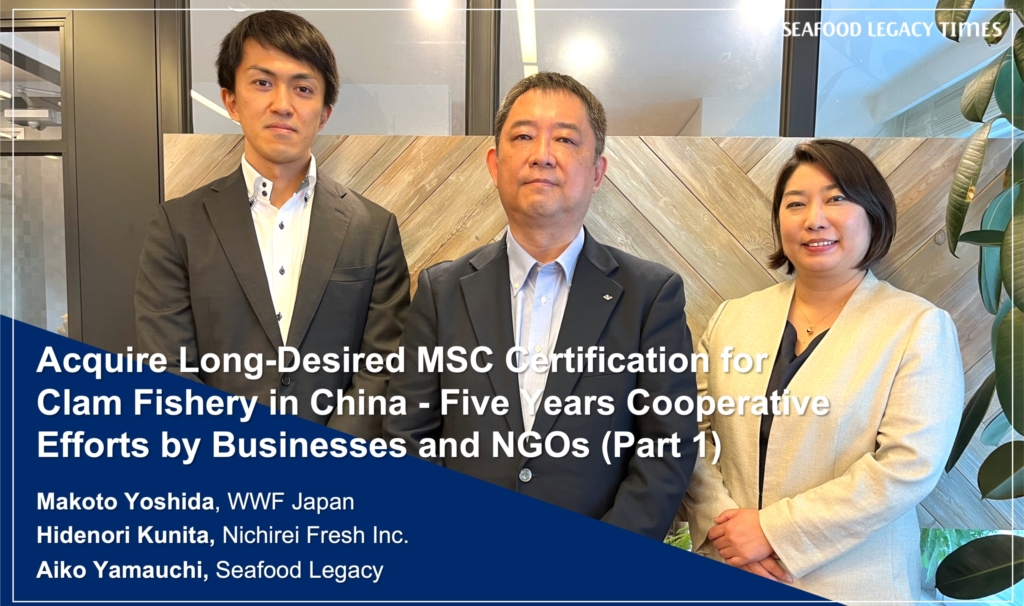






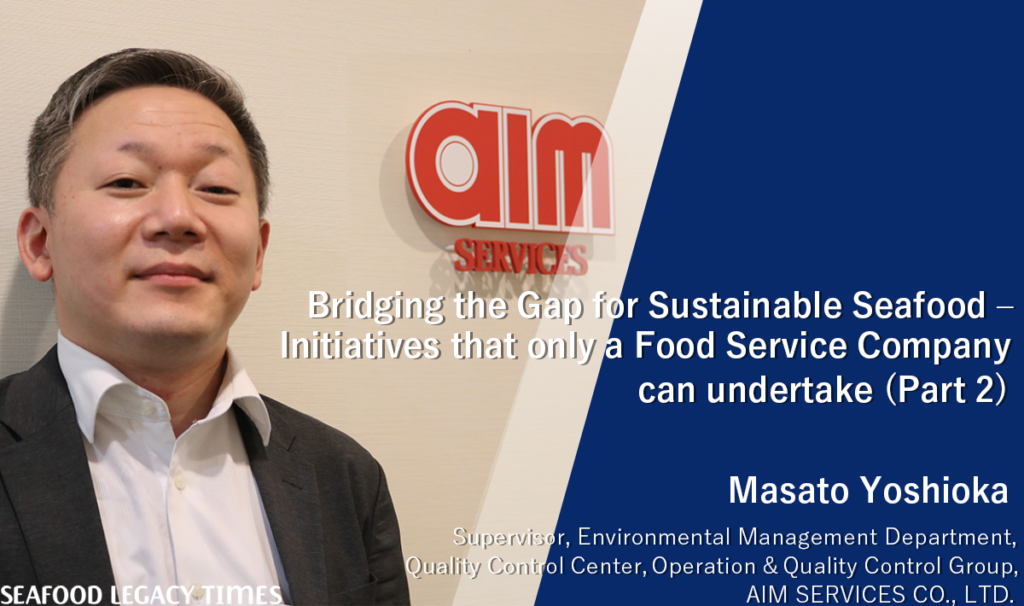
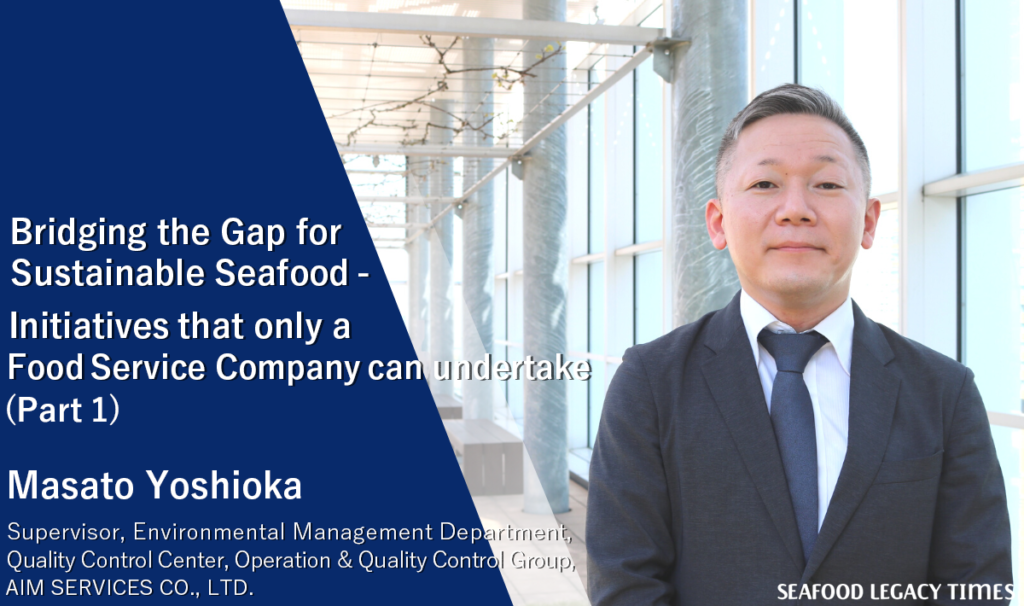
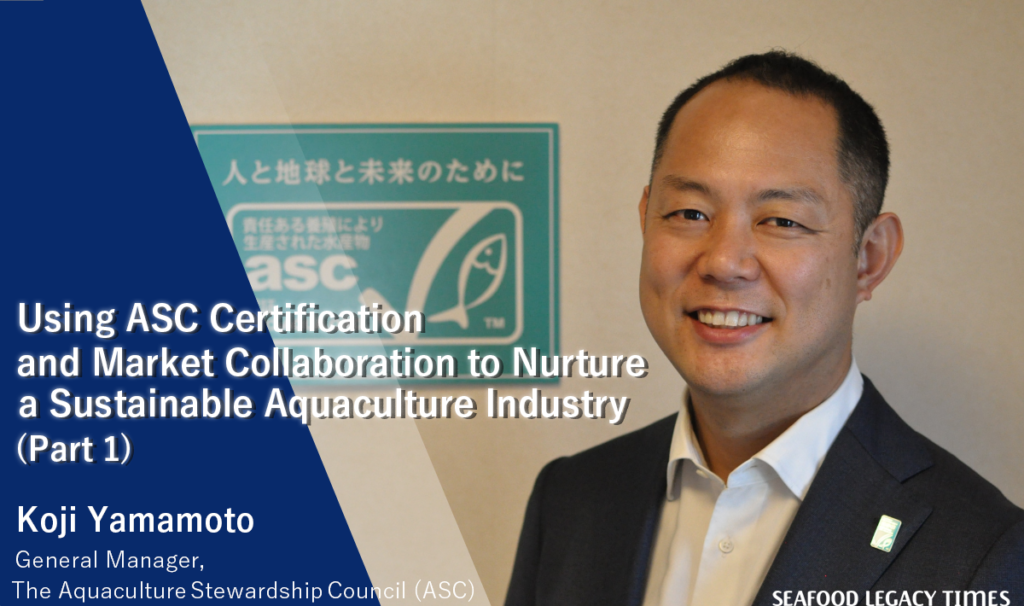
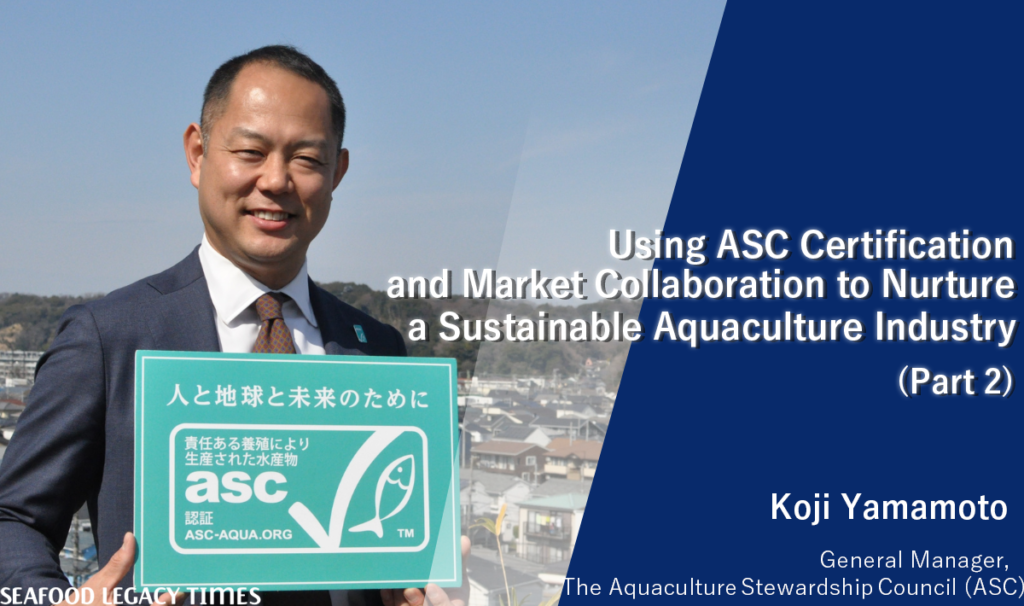
2-1024x606.png)
-1-1024x606.png)
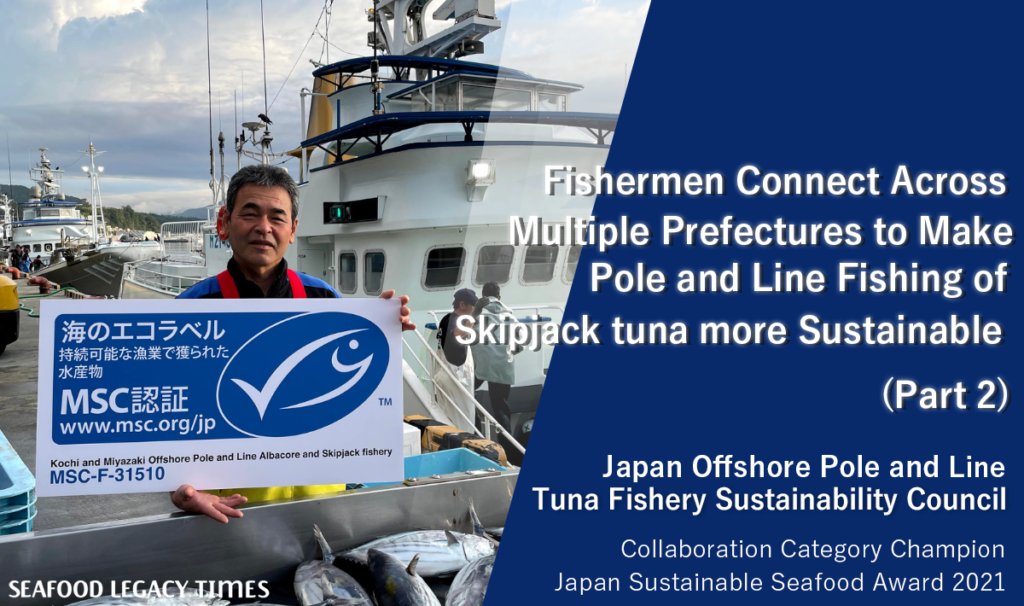
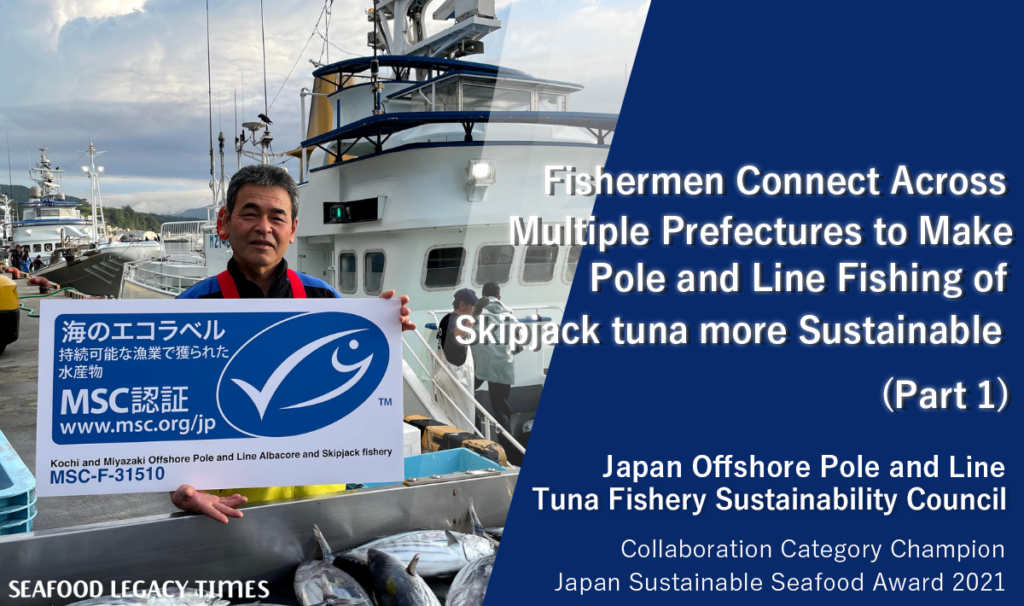
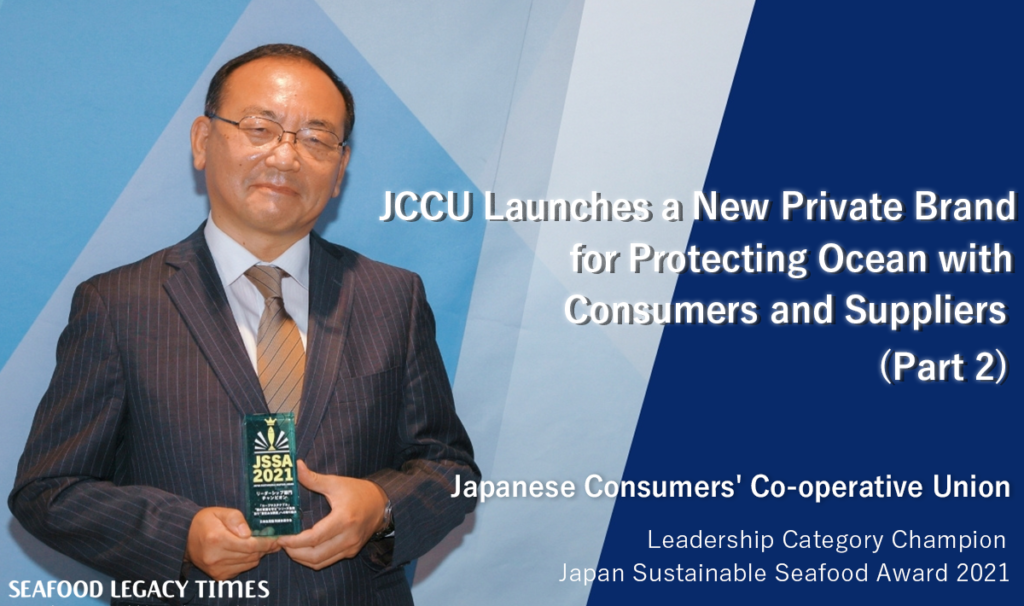
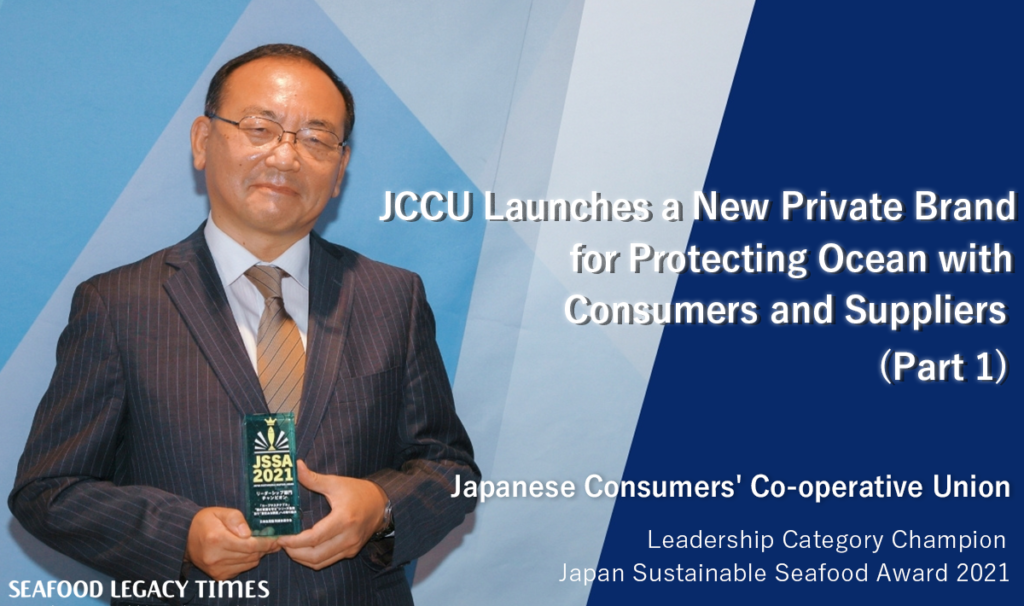
Part2-1024x606.png)
Part1-1024x606.png)
